
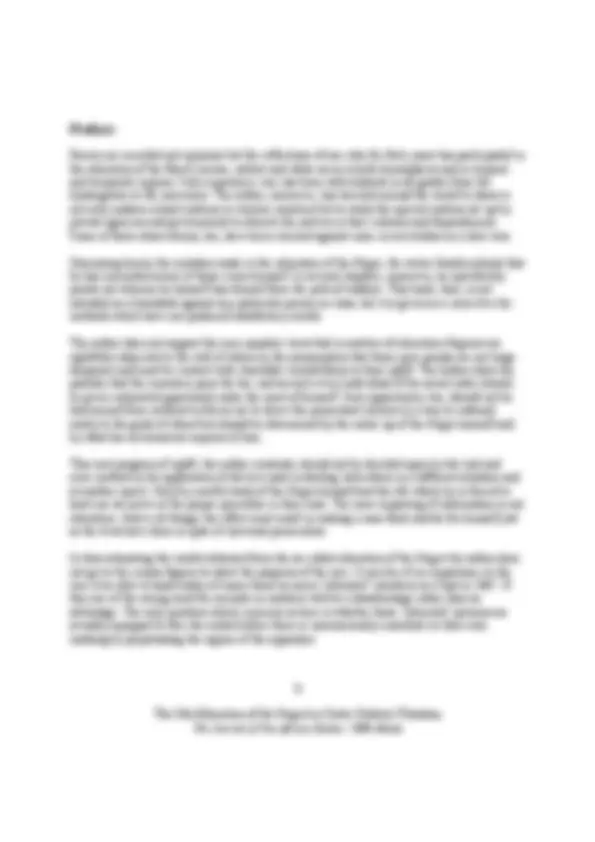
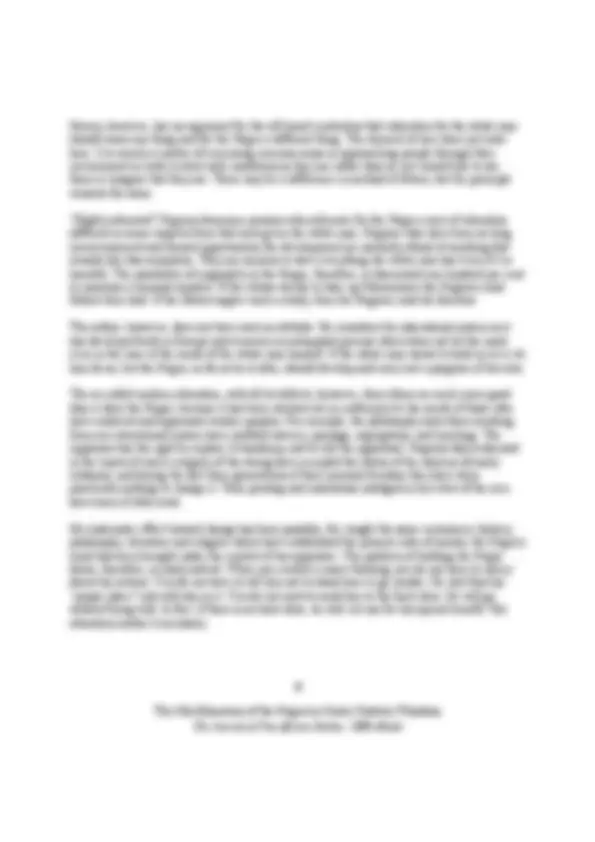
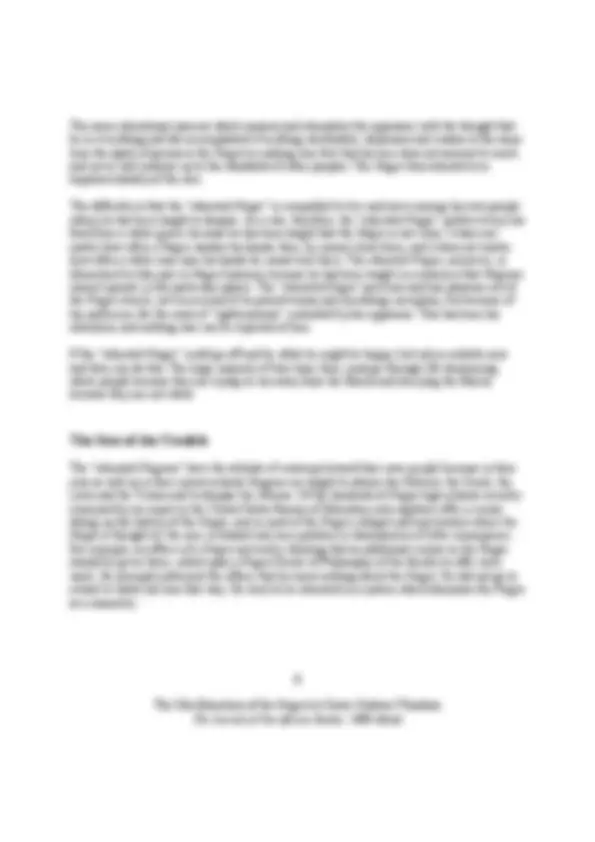
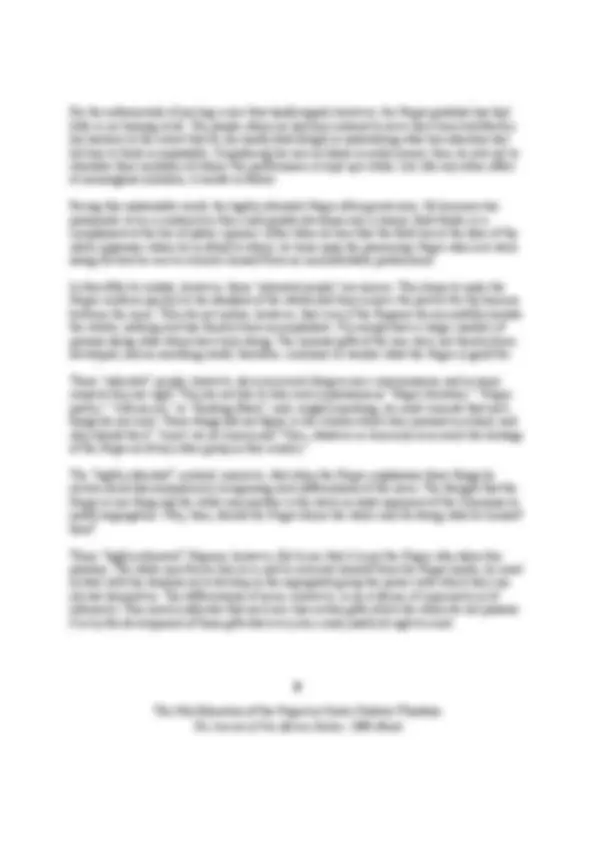
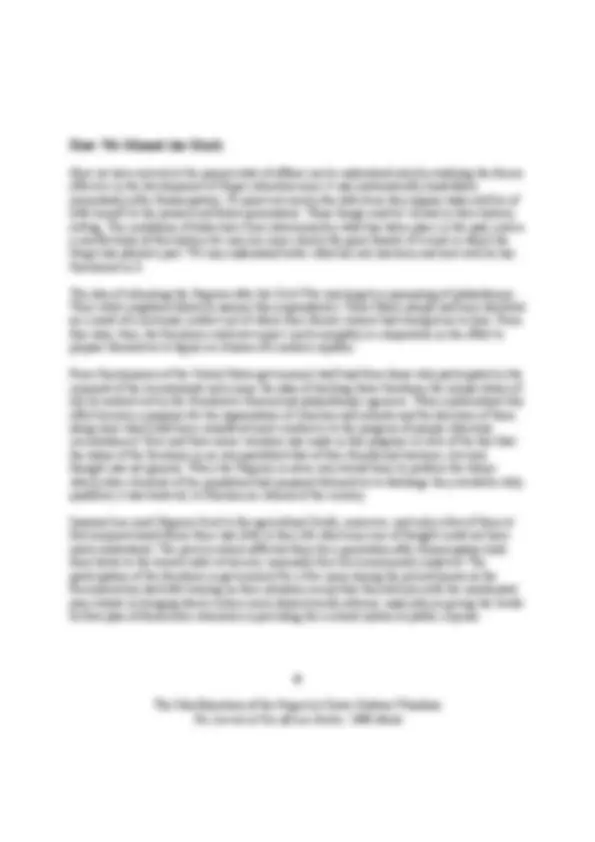
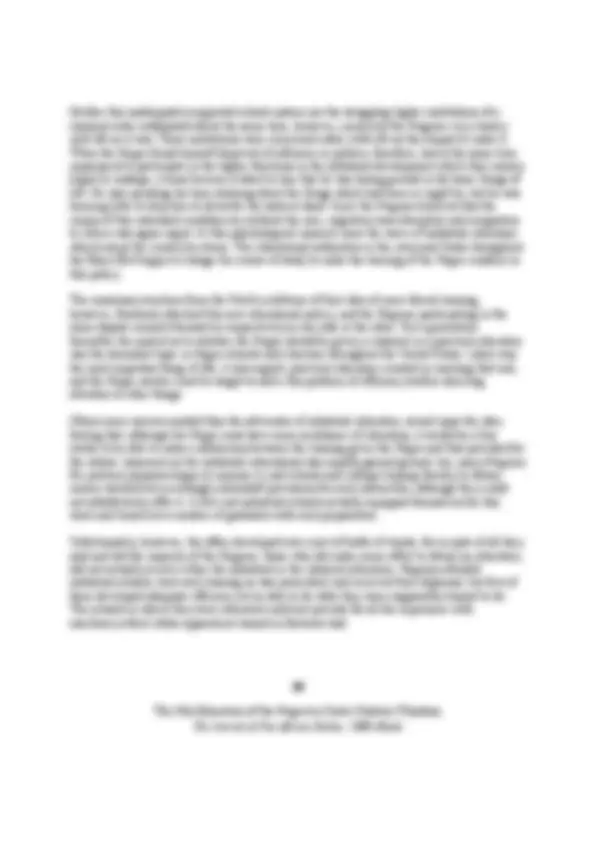
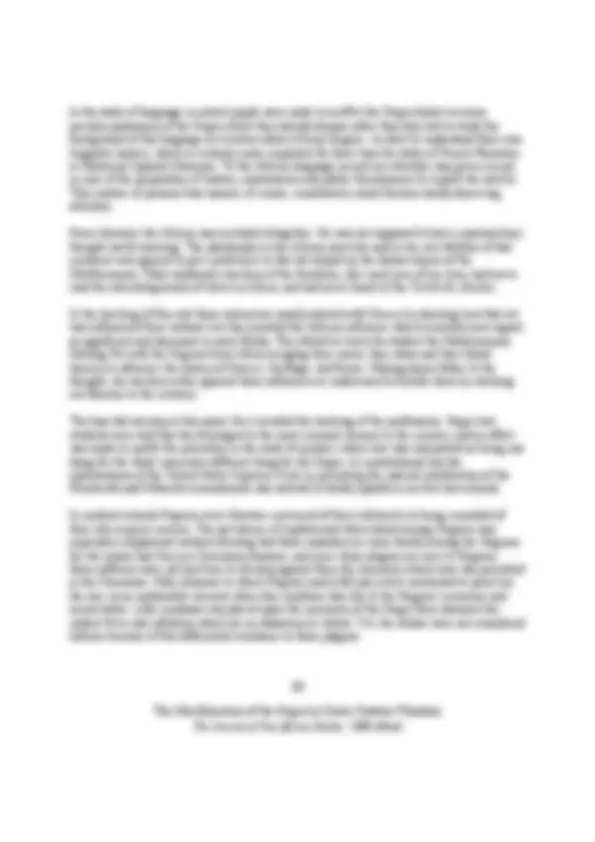
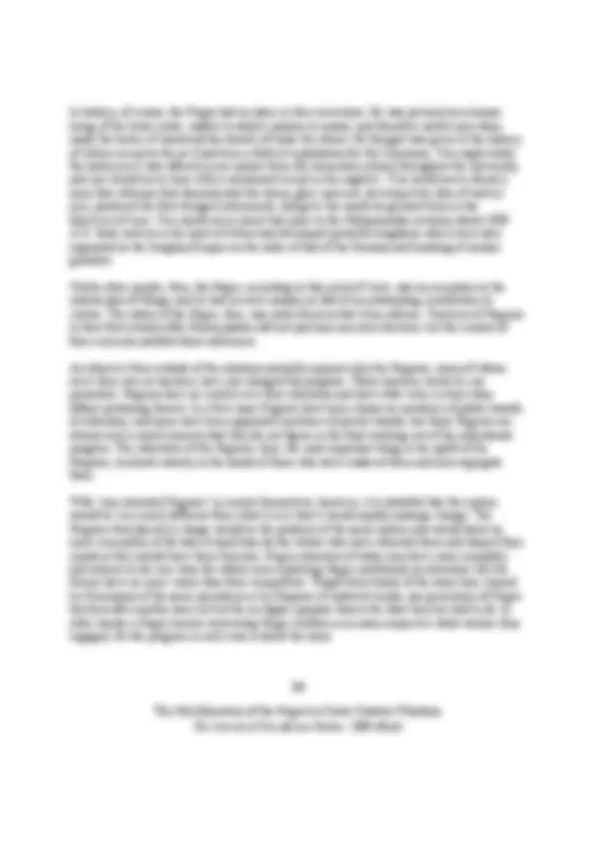
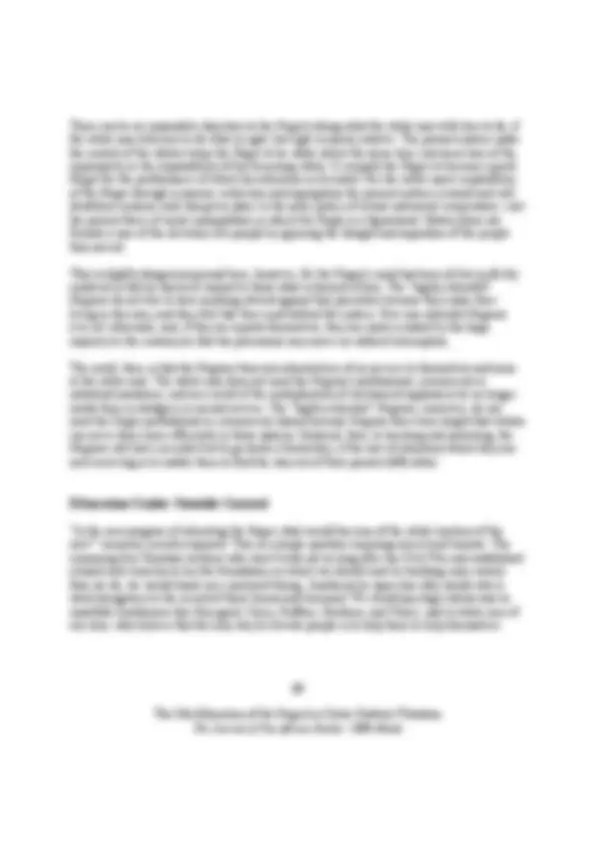
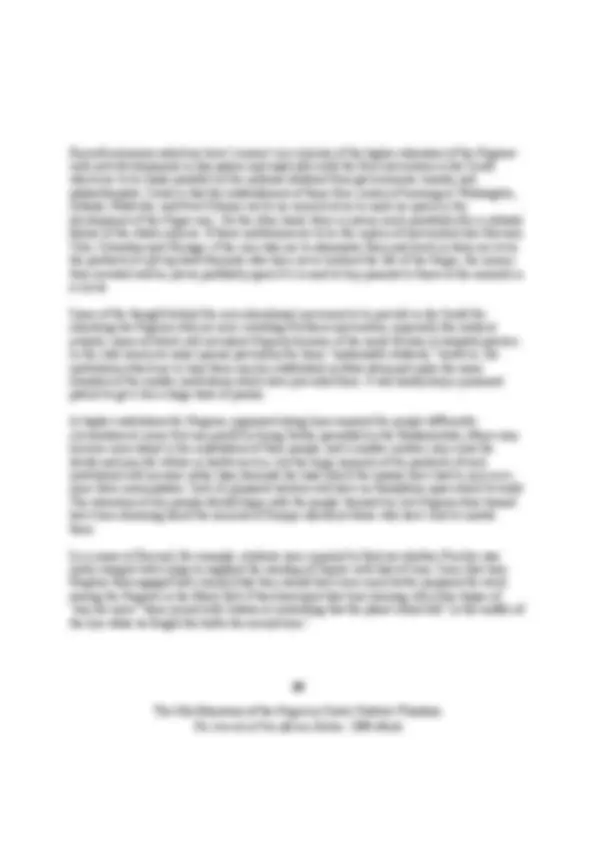
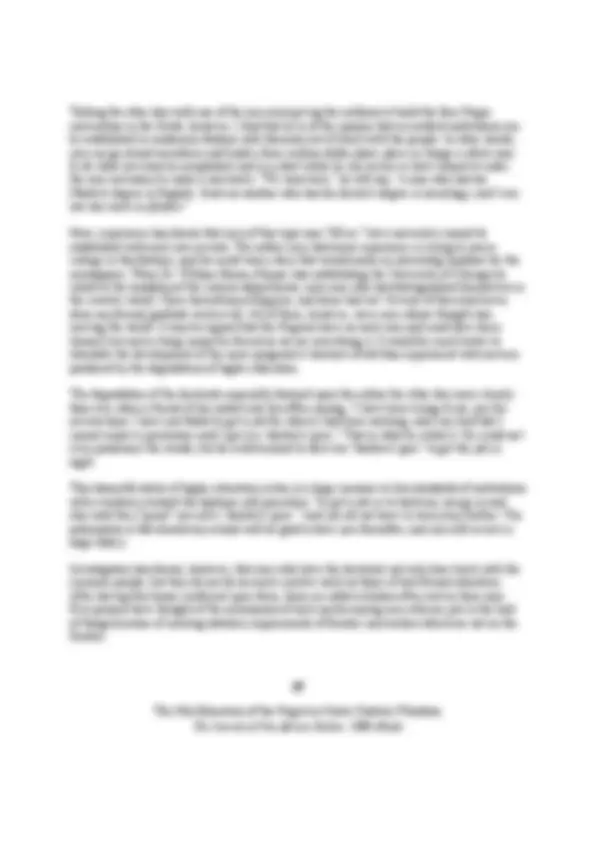
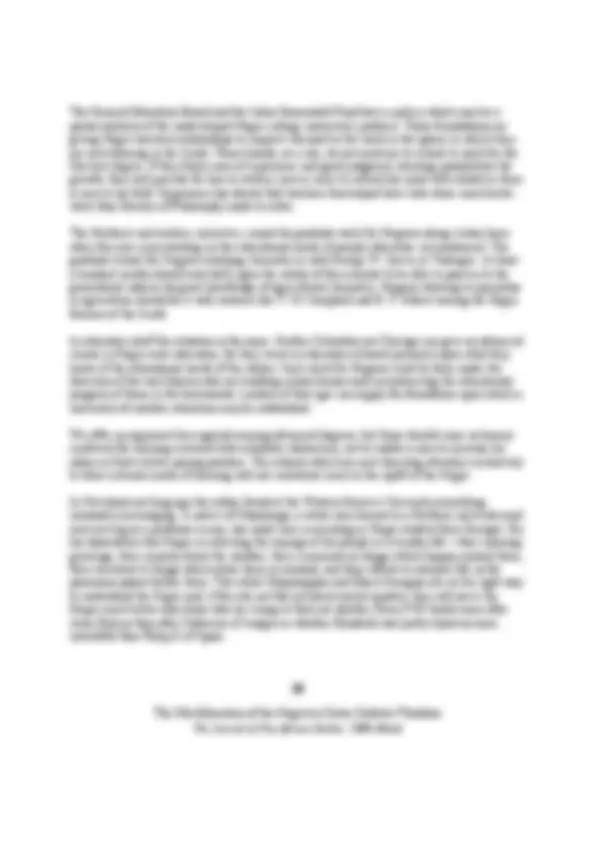
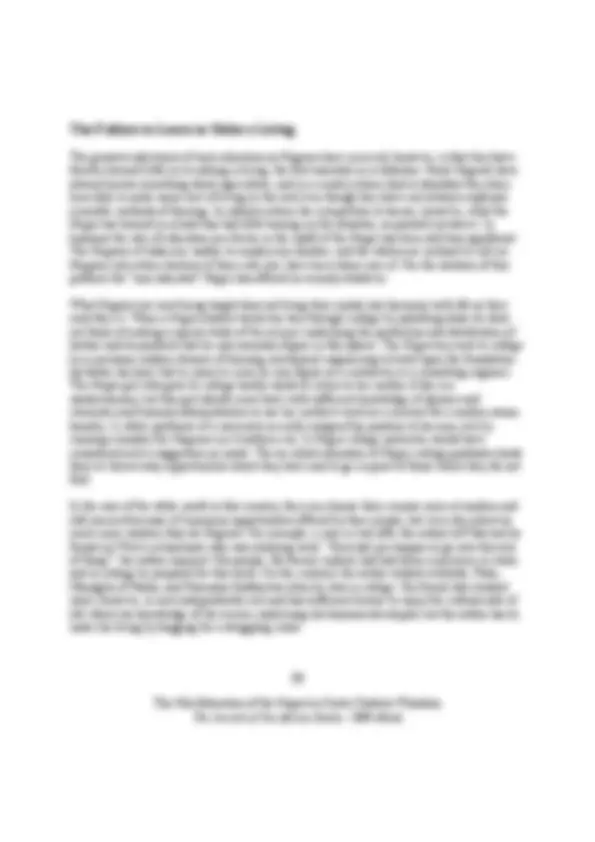
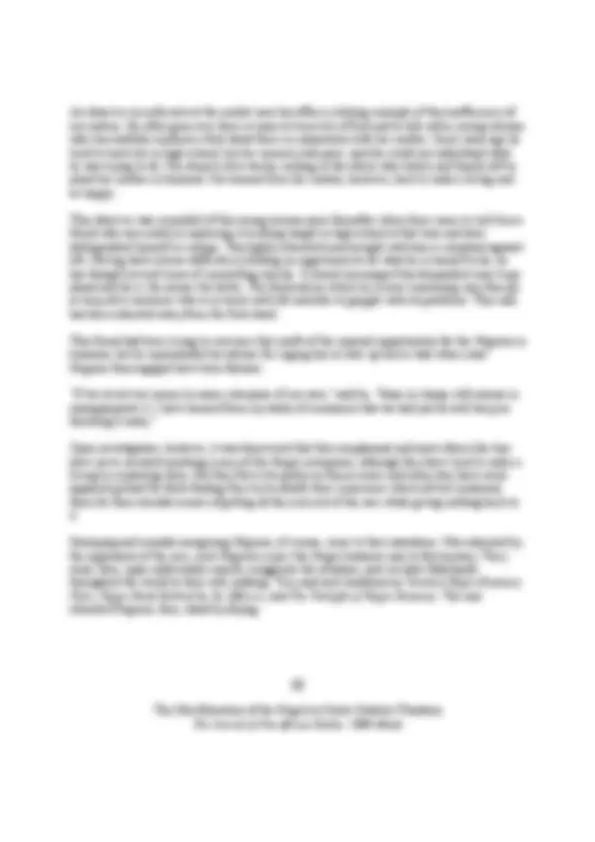
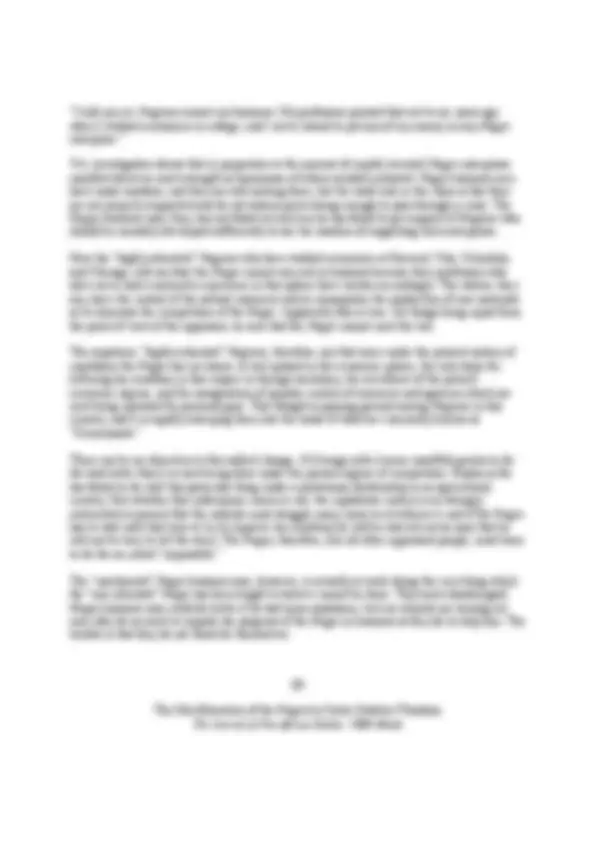
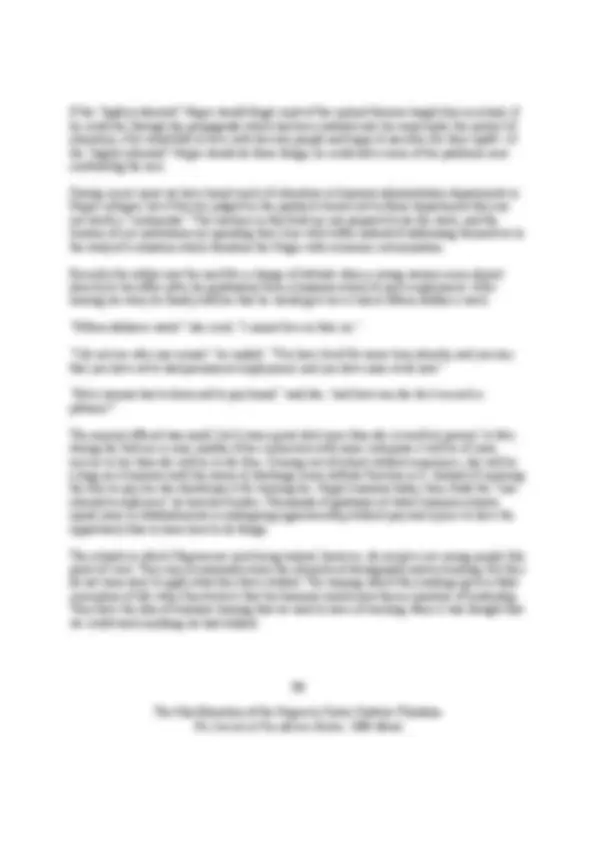
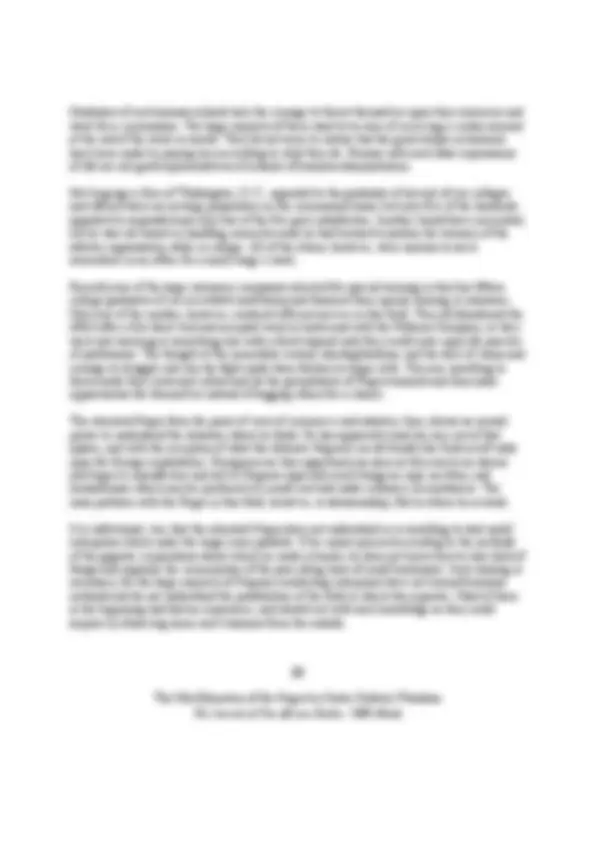
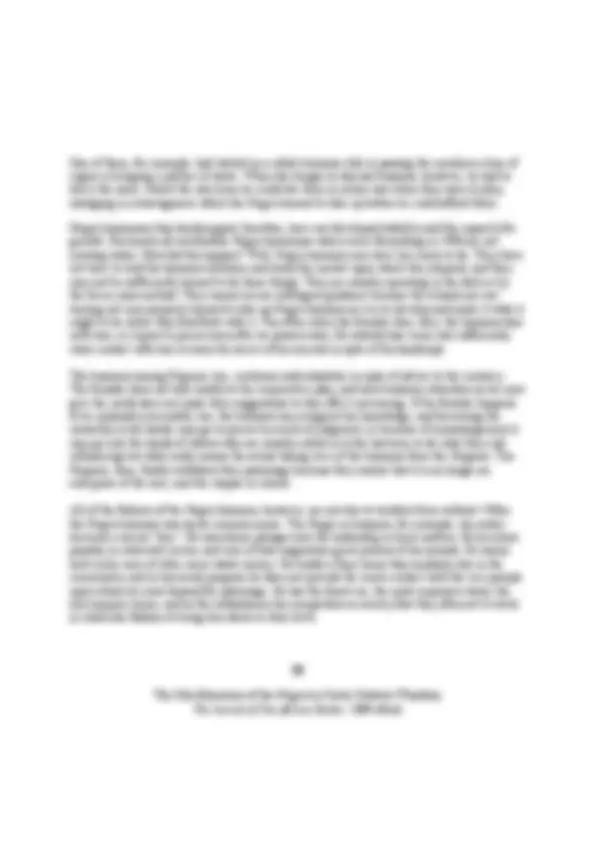
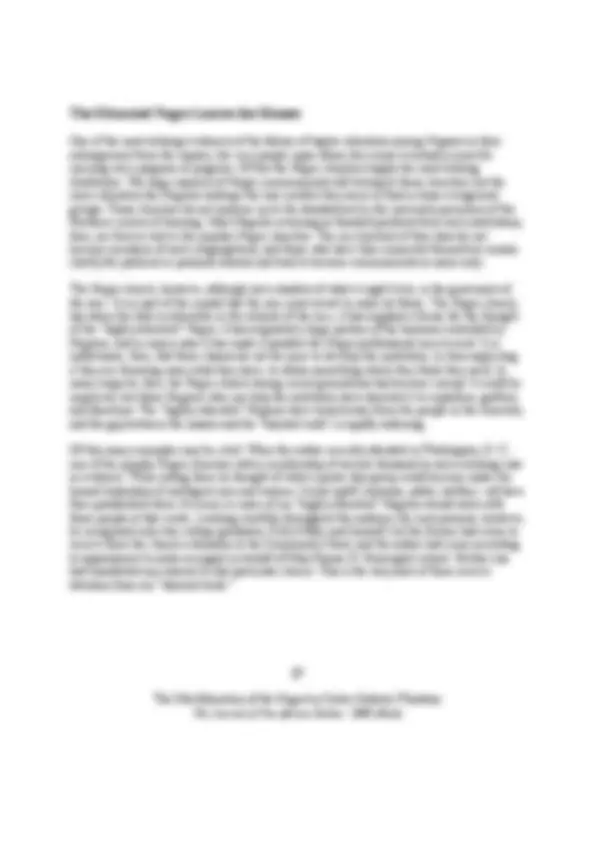
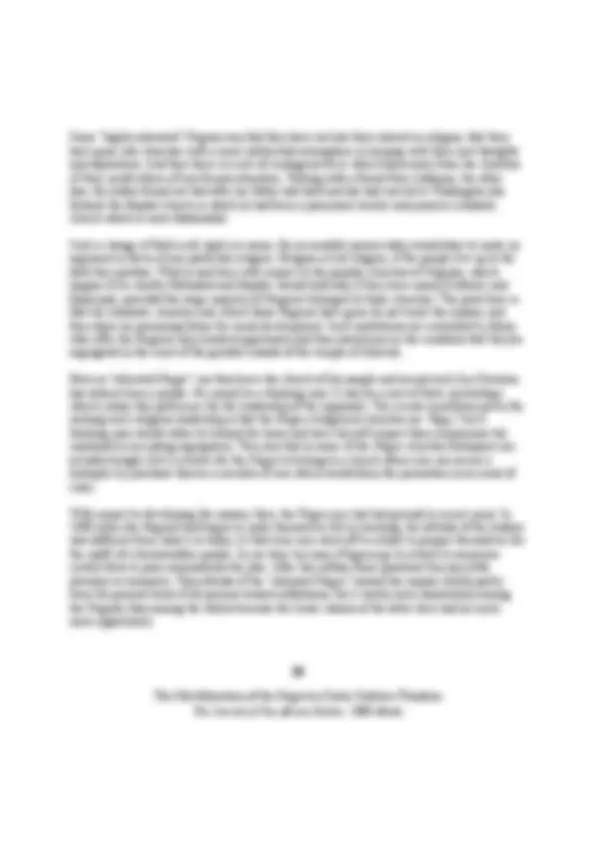
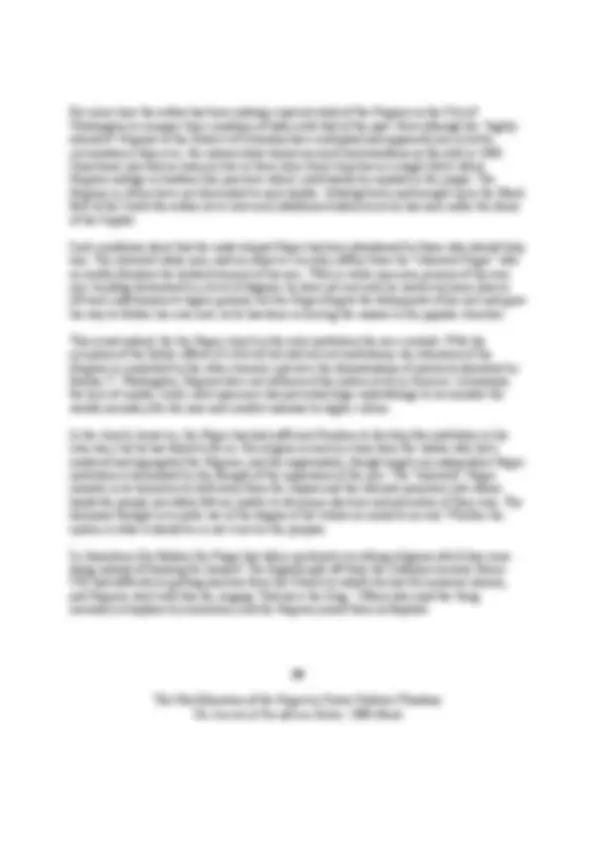
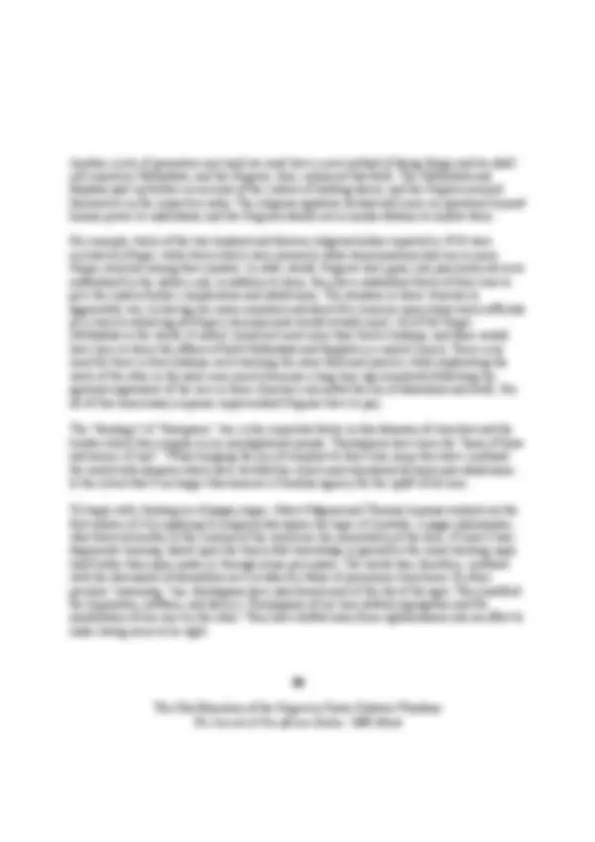

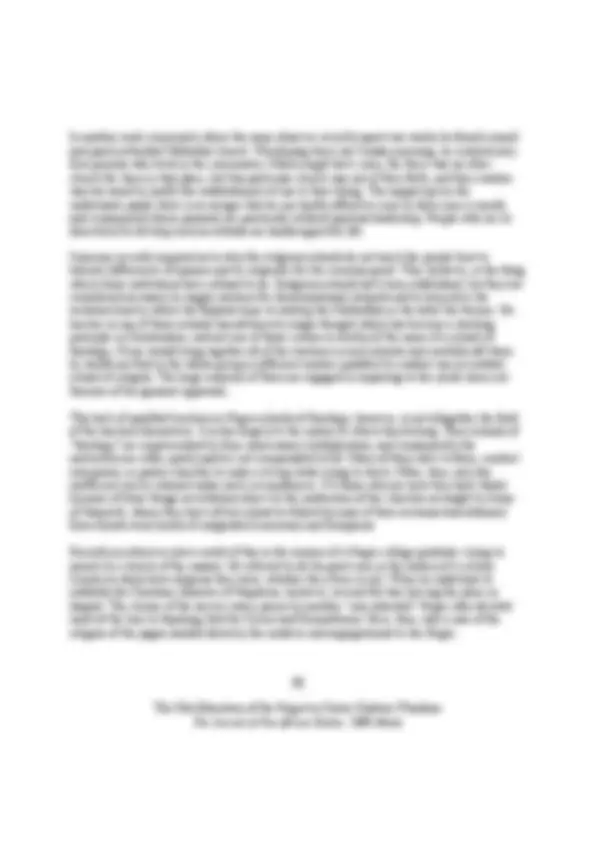
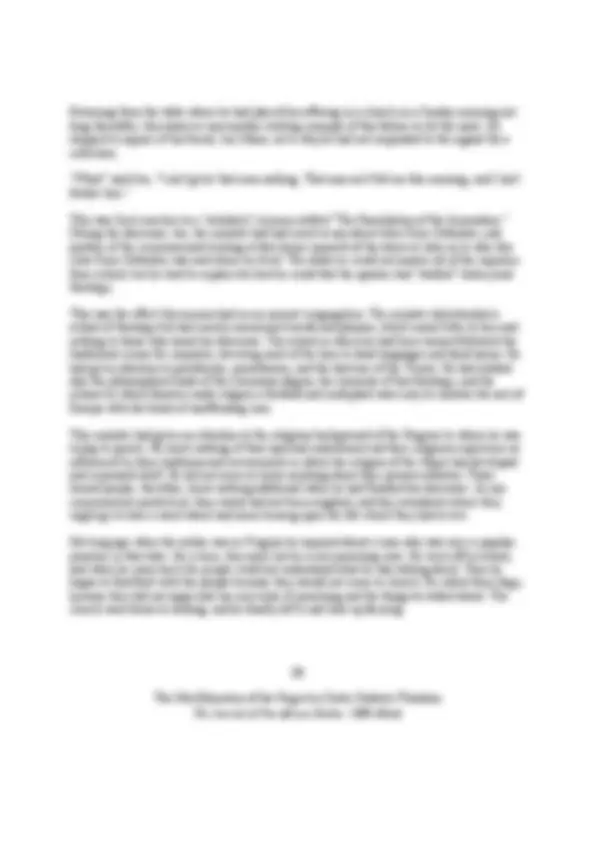
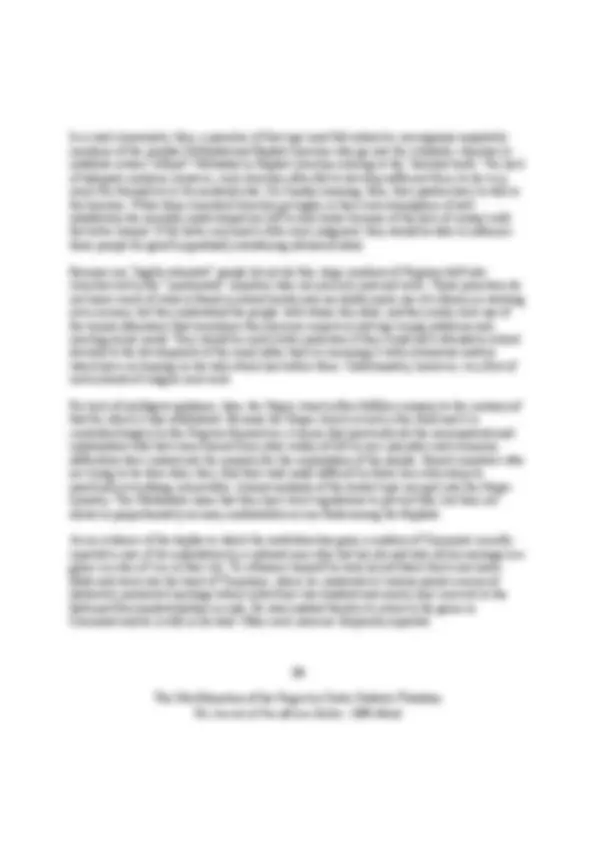
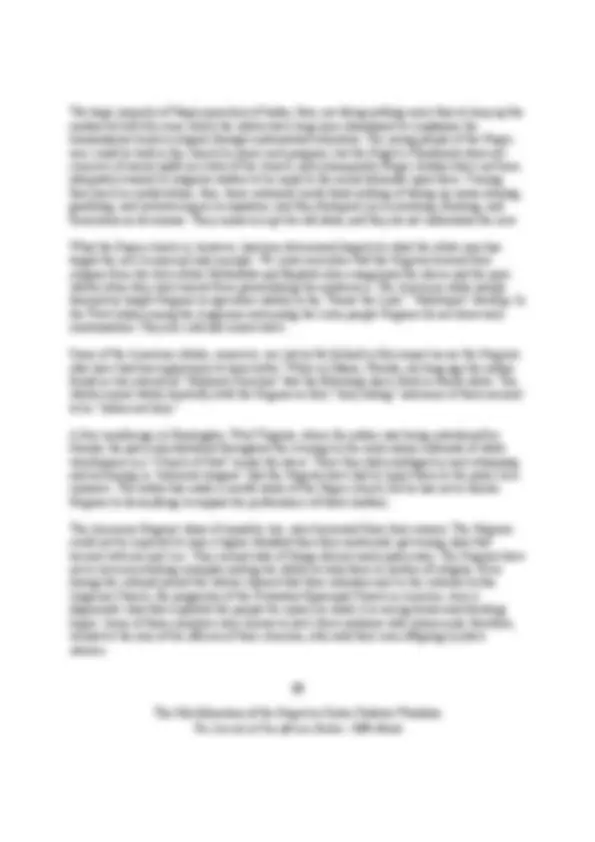
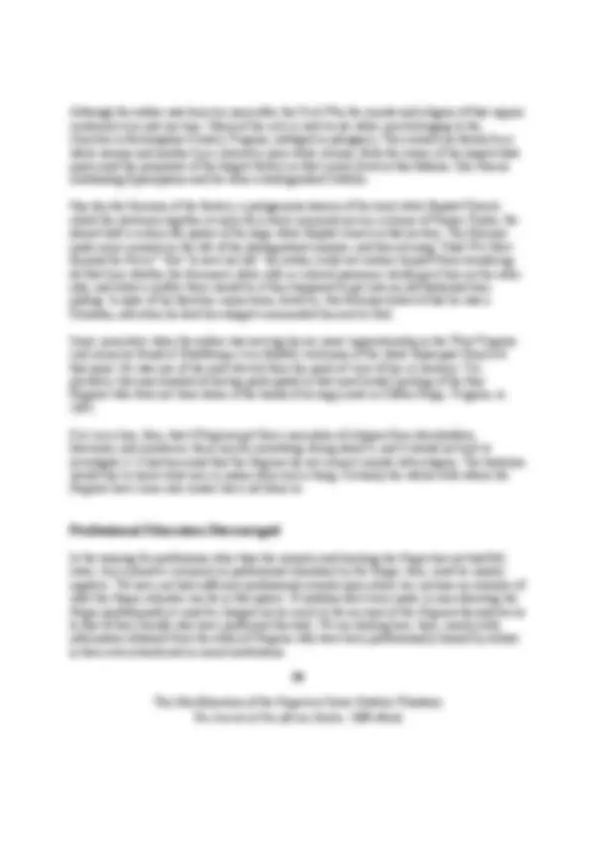
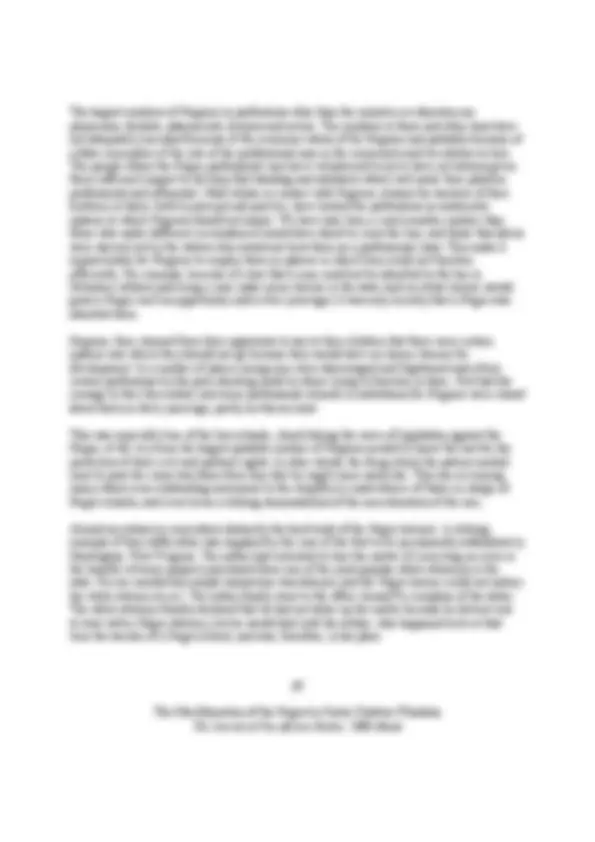
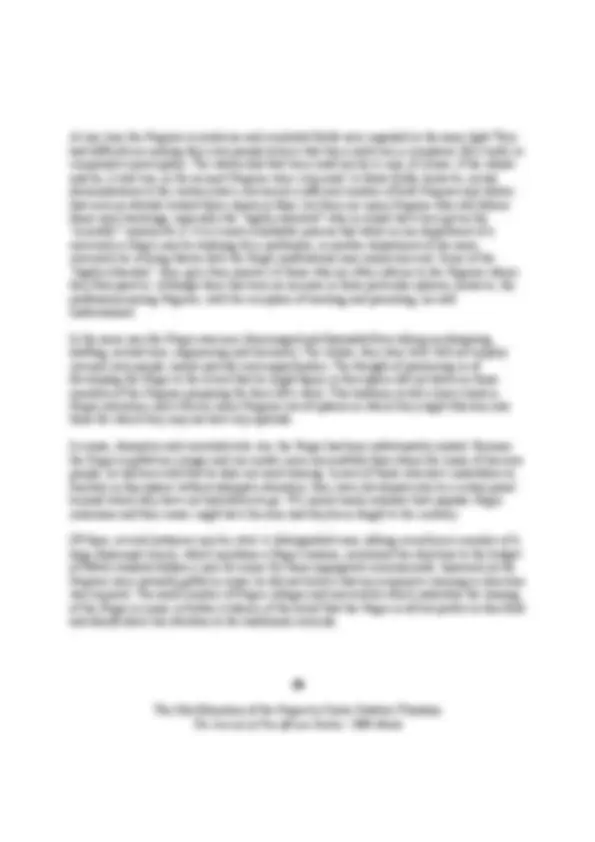
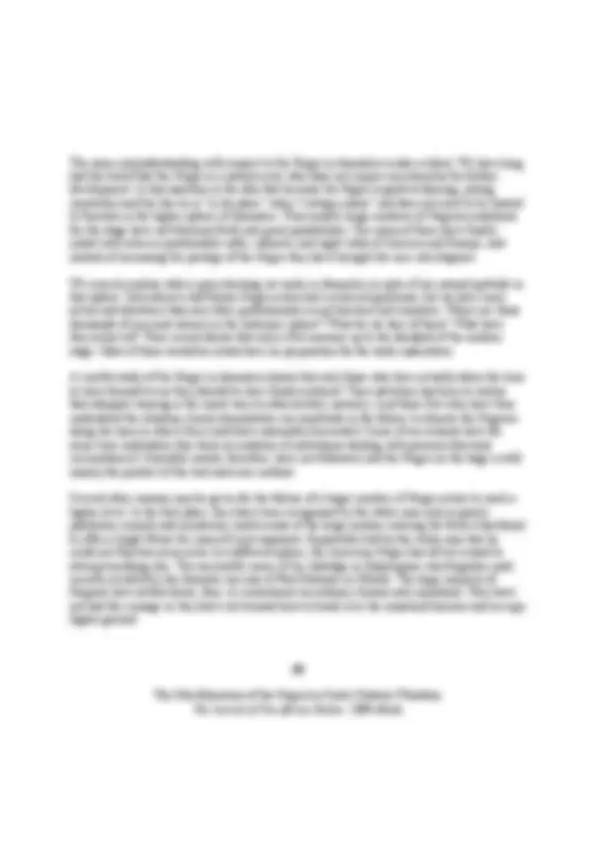
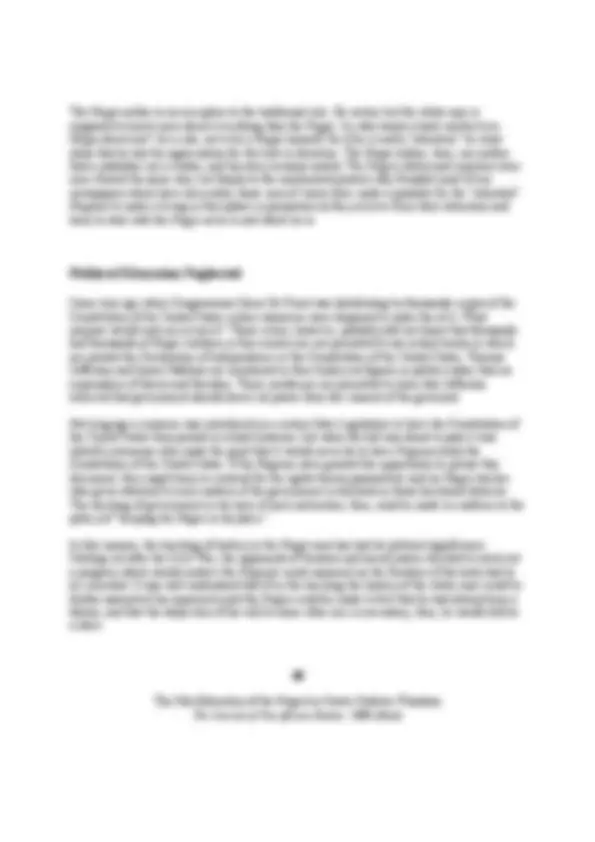
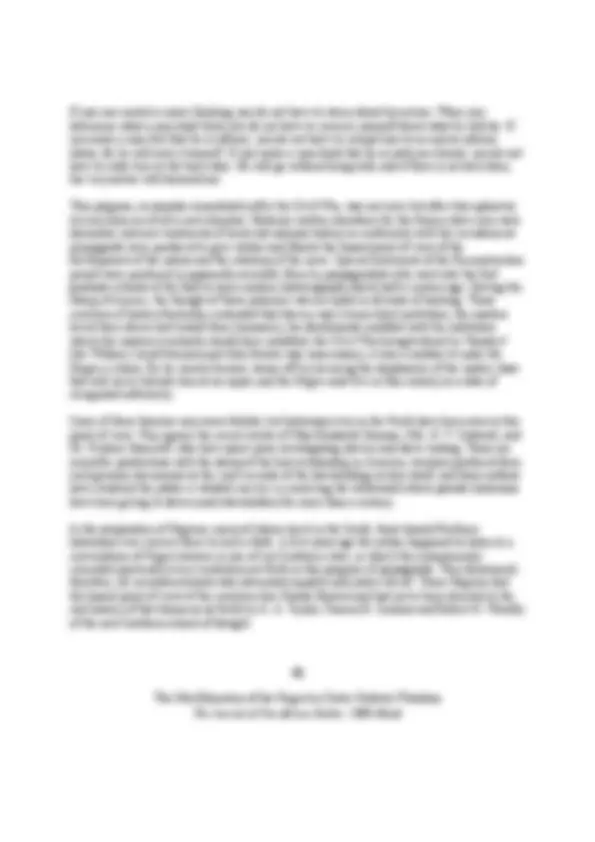
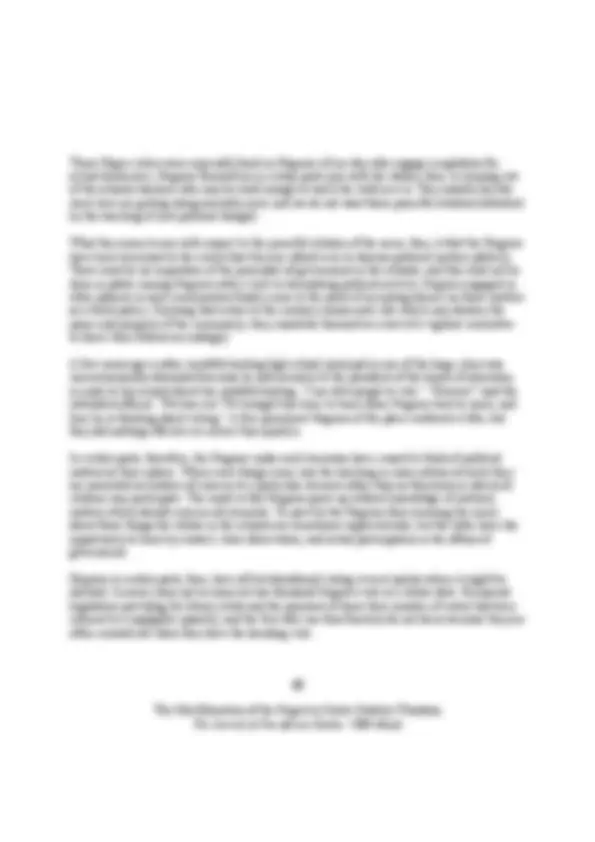
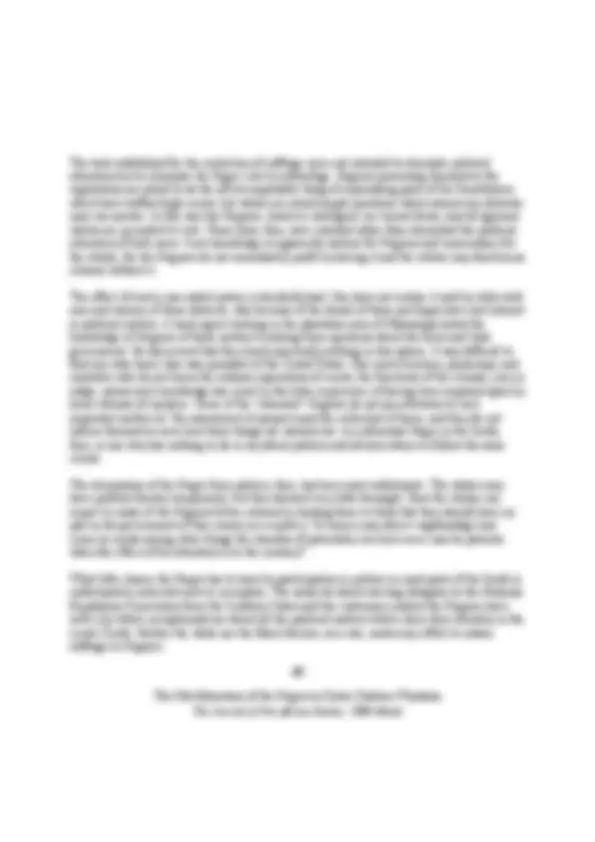
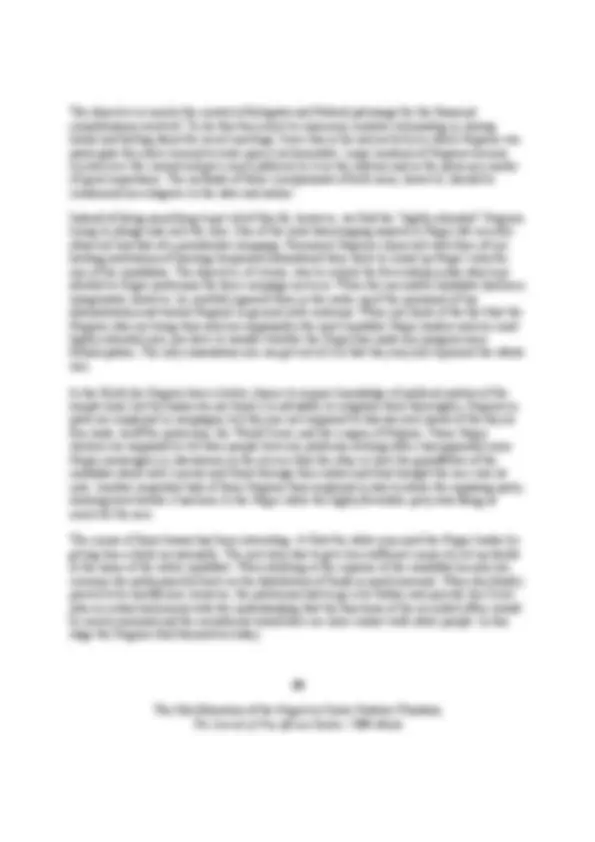
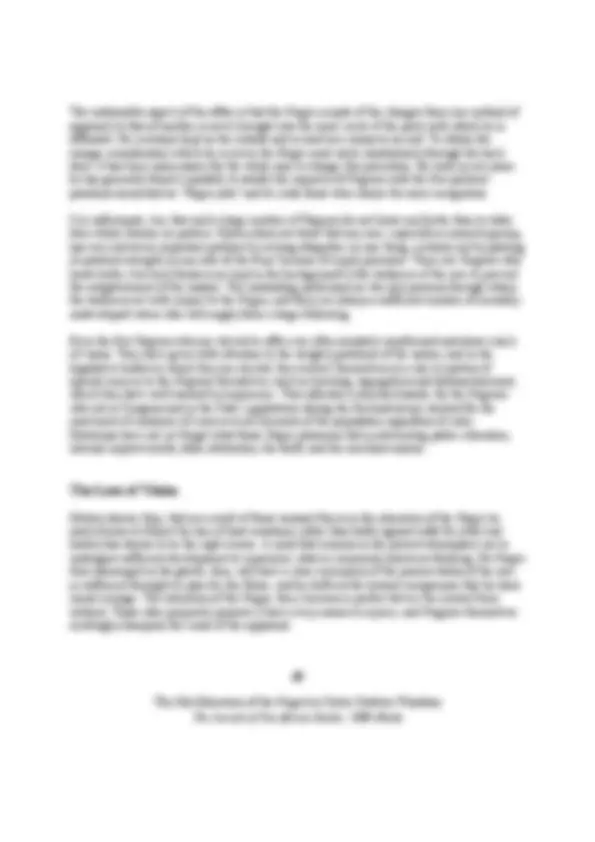
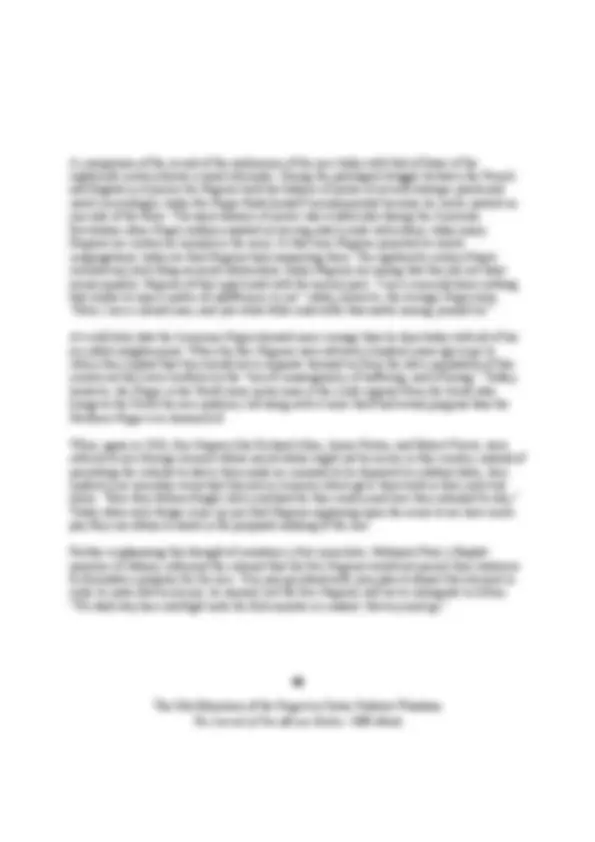
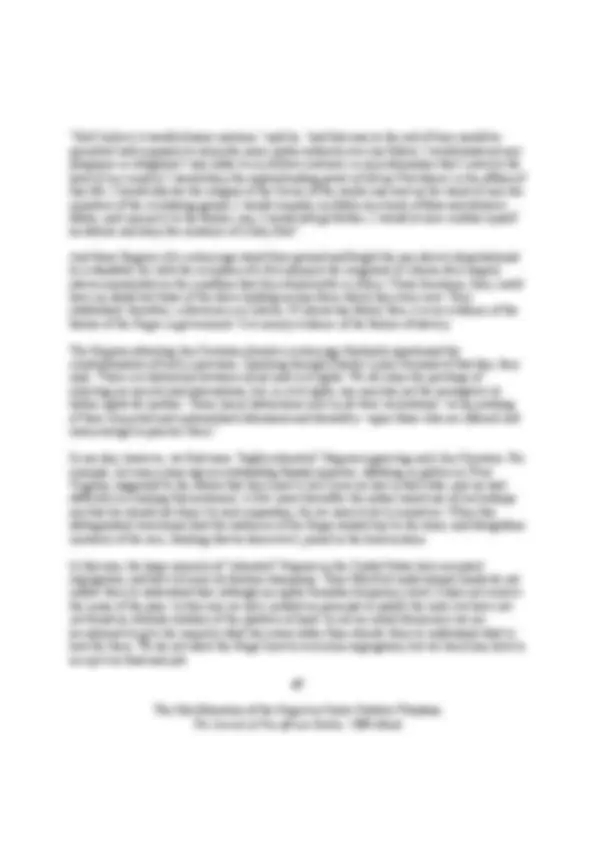
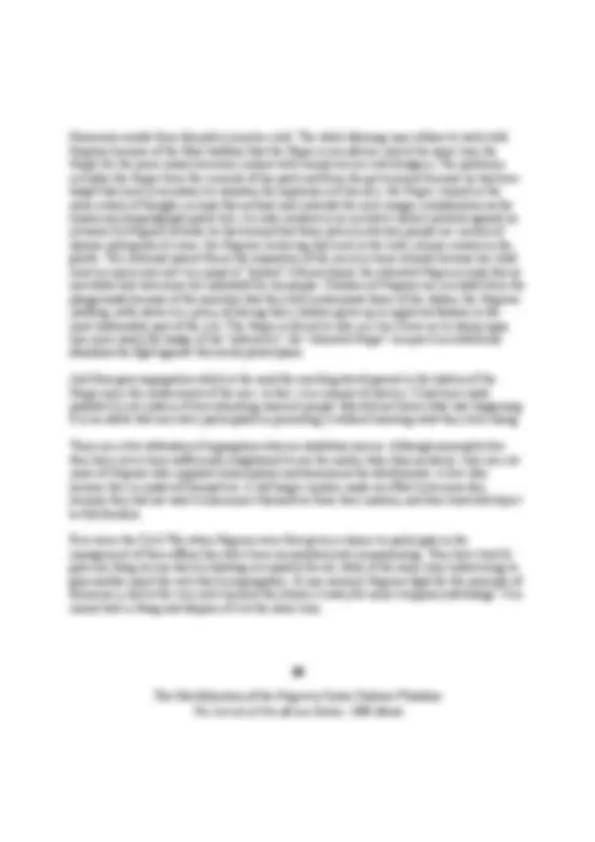
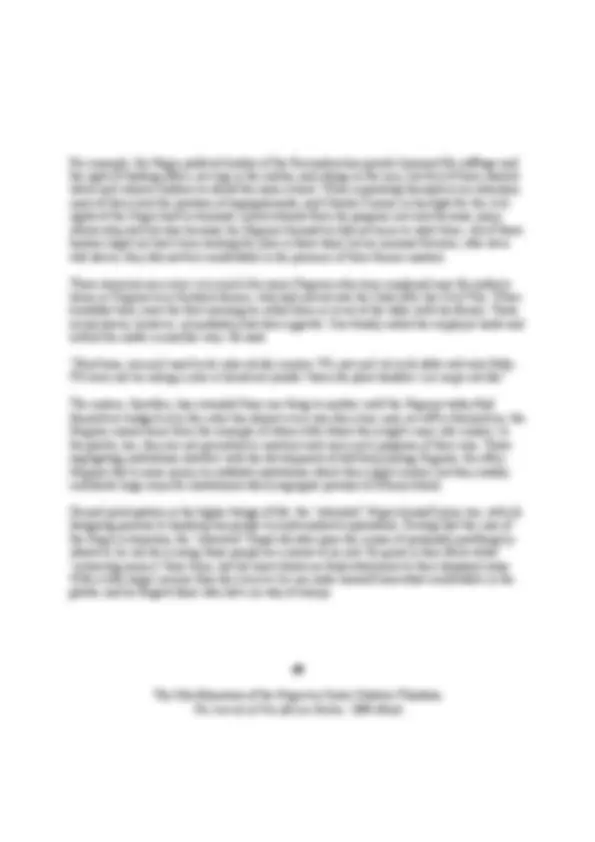
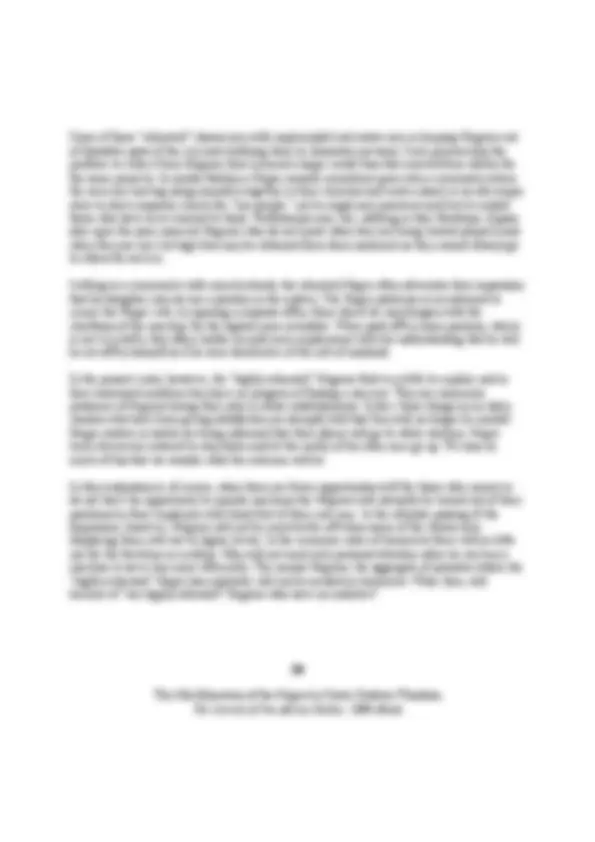
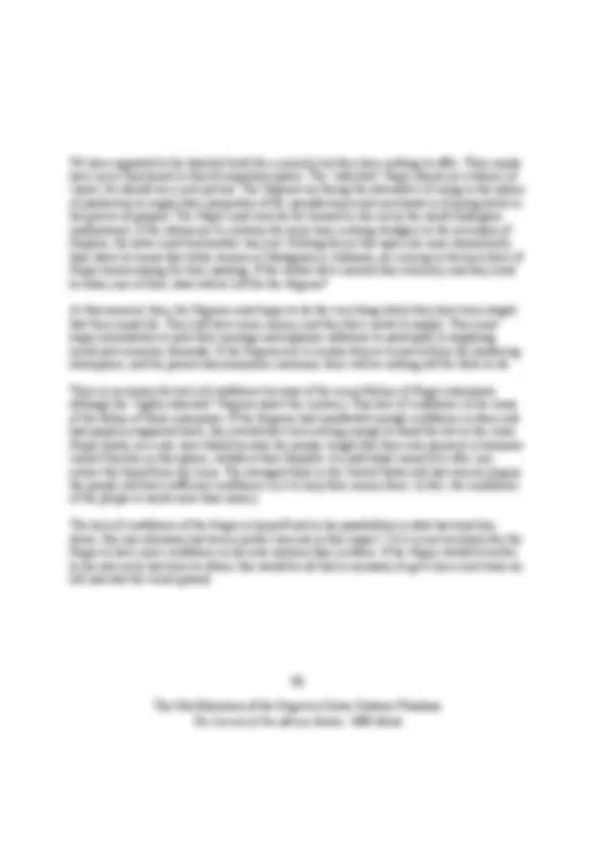
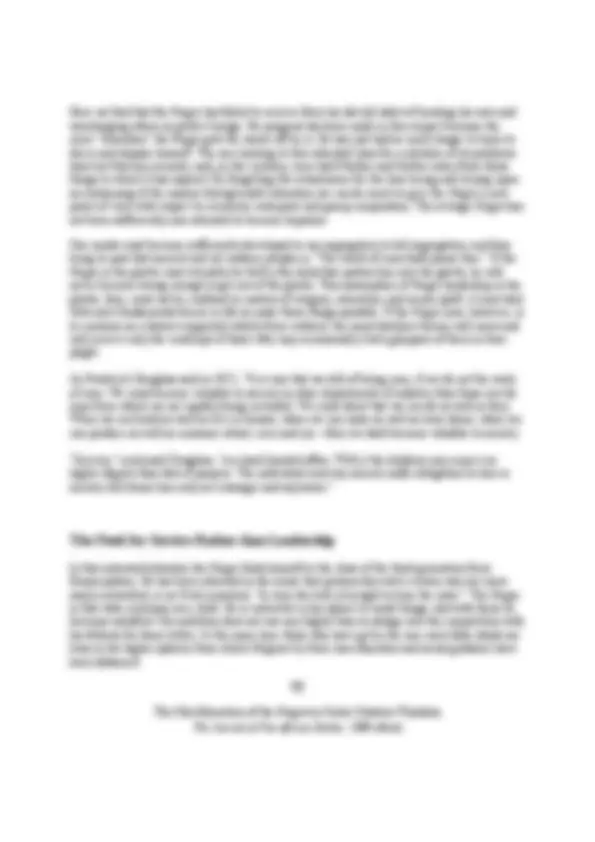
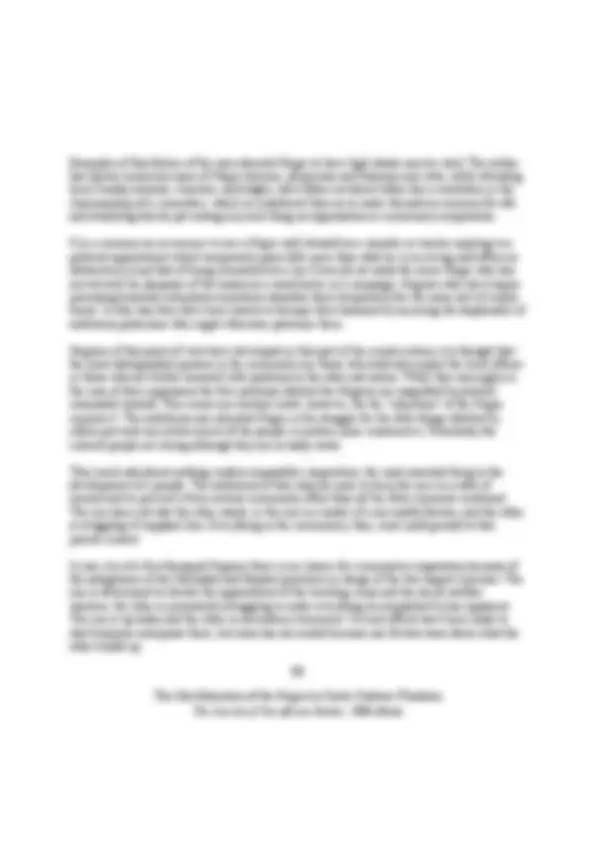
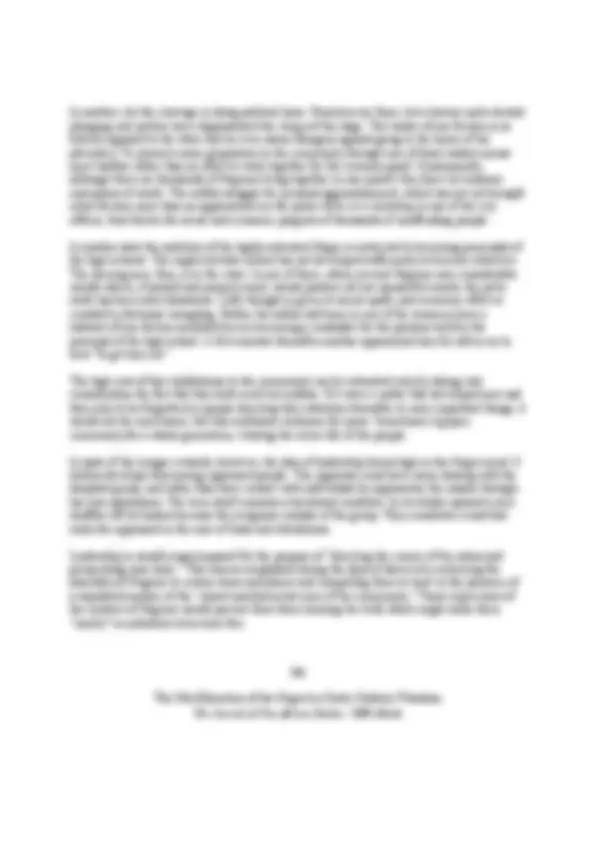
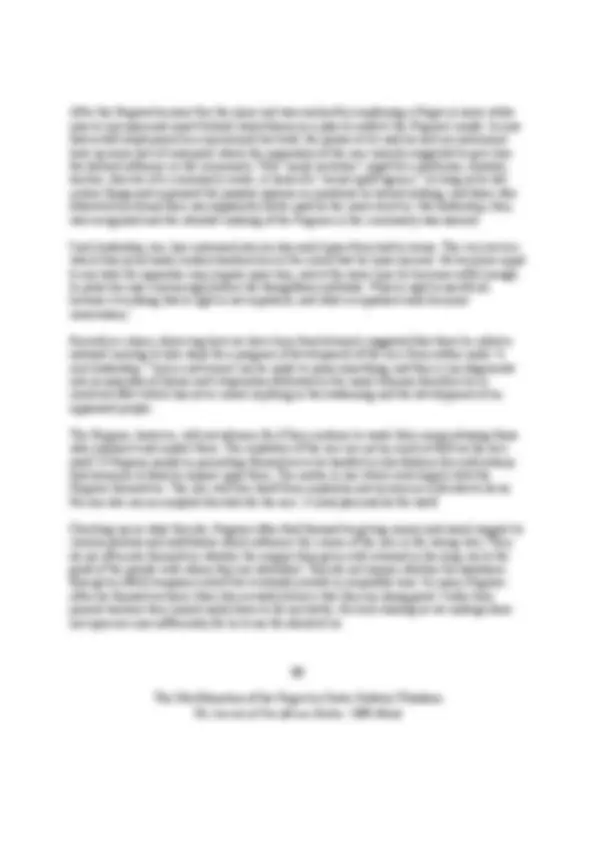
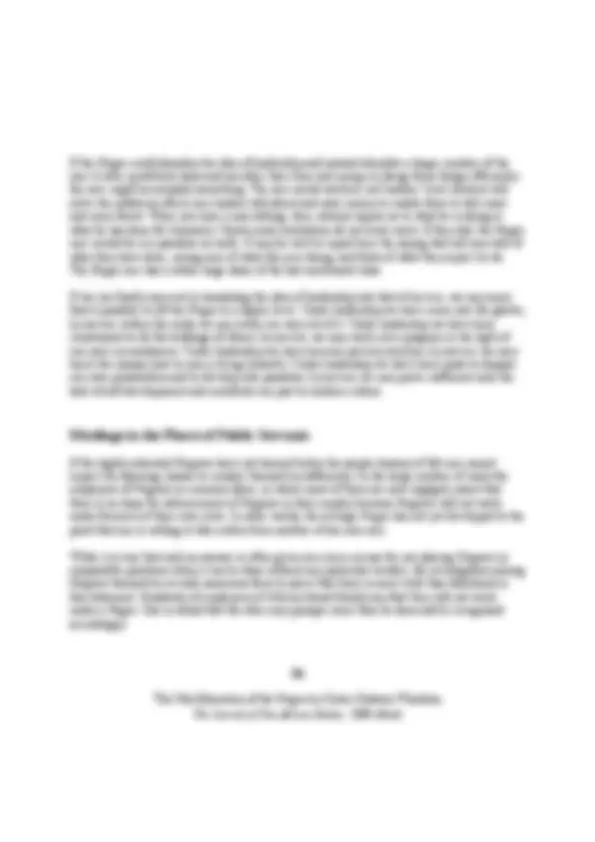
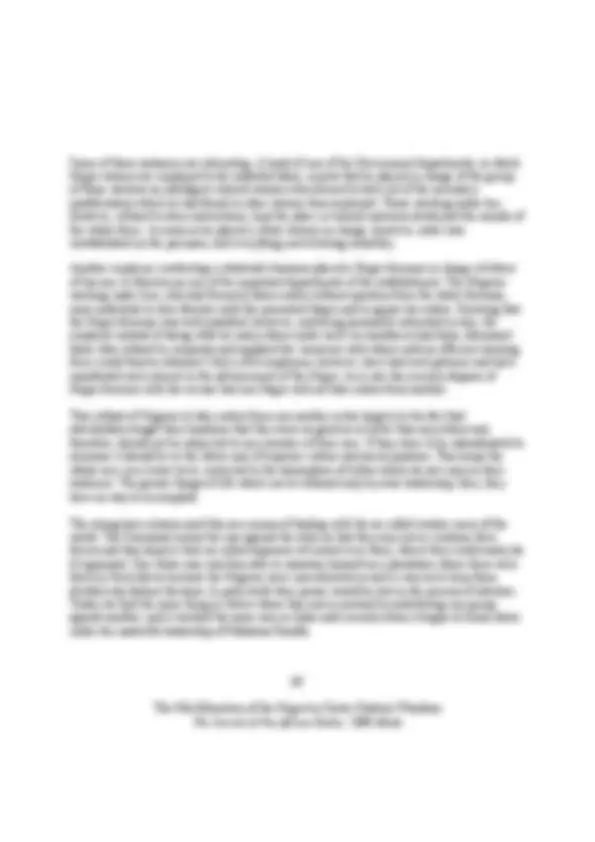
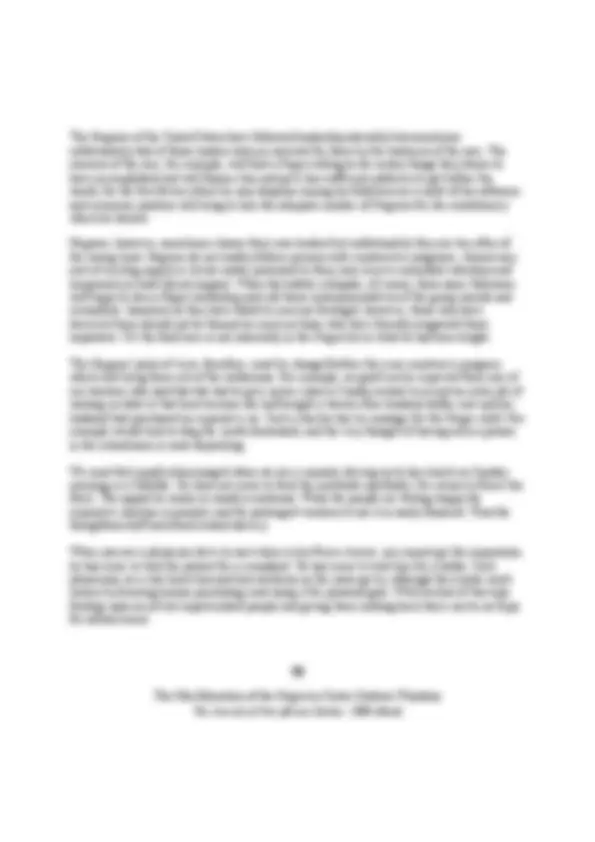
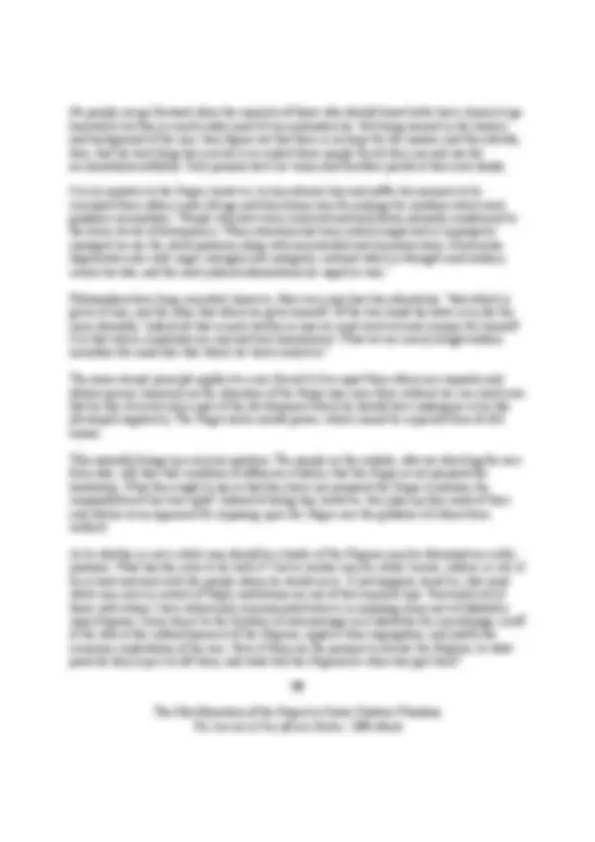
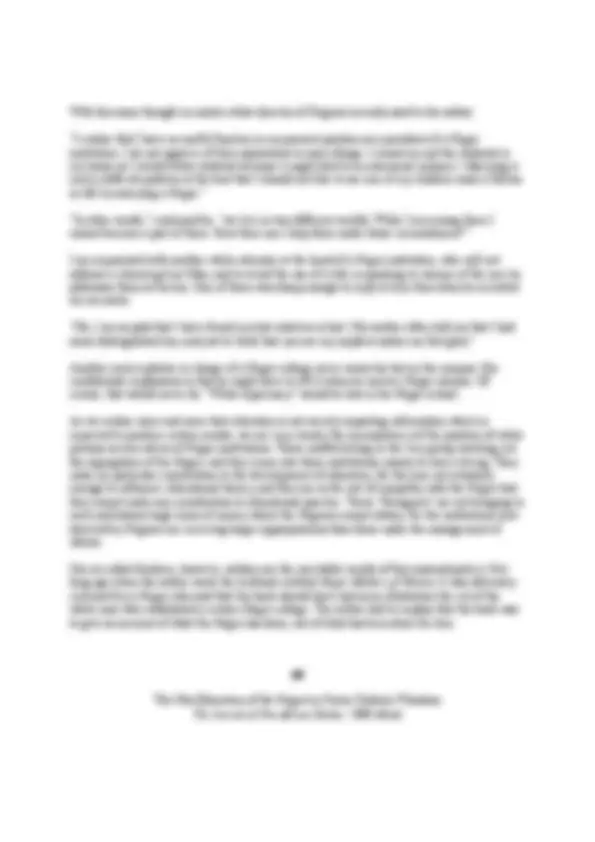
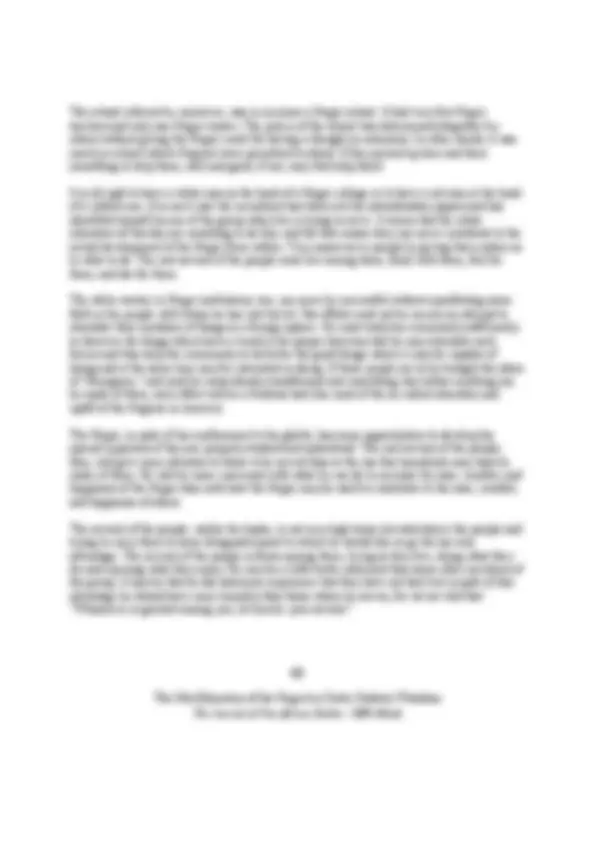

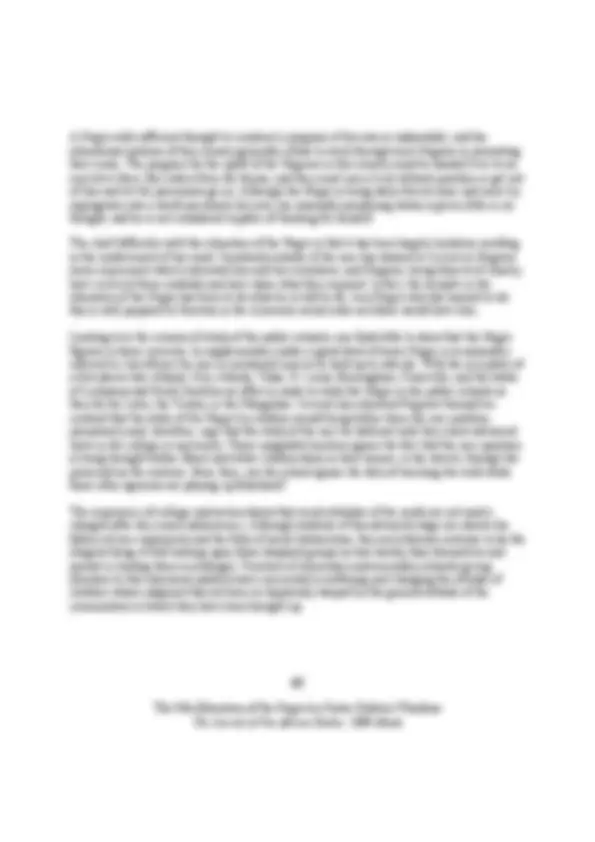
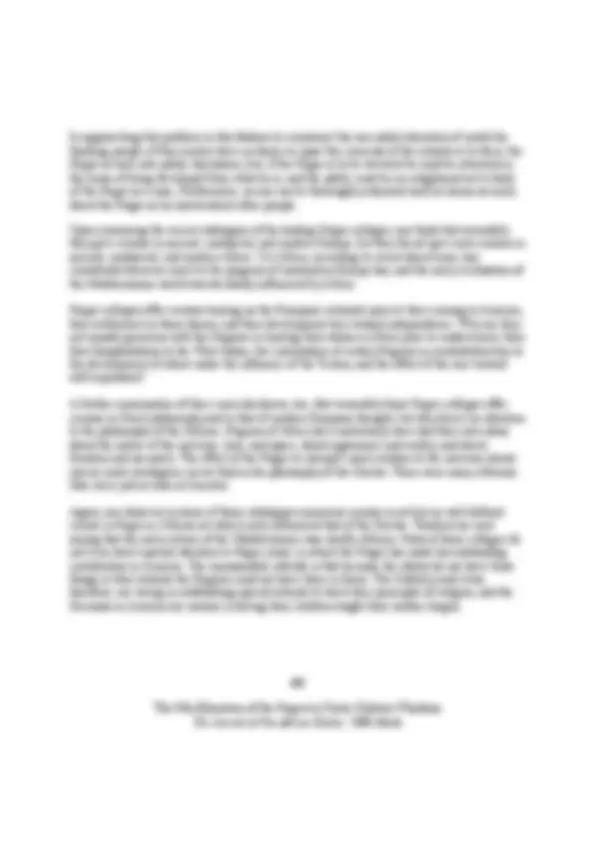
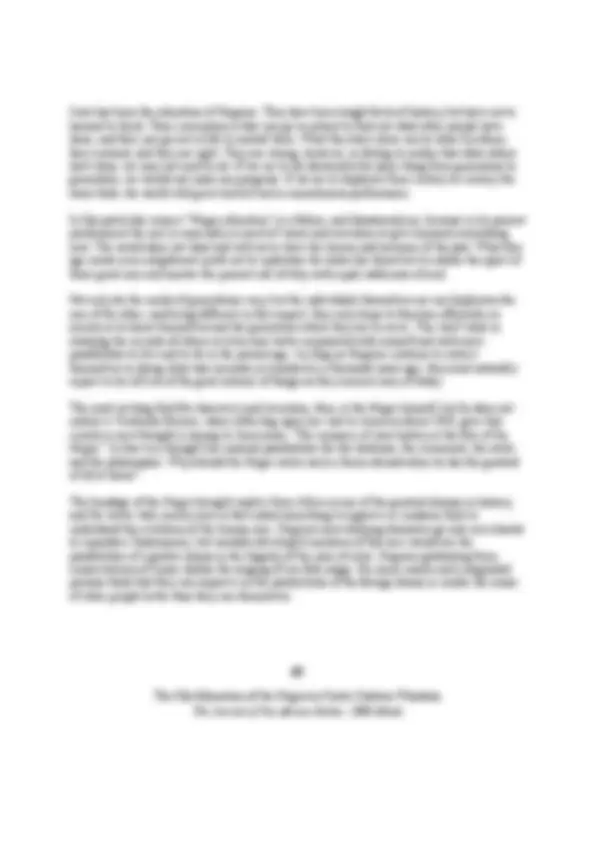
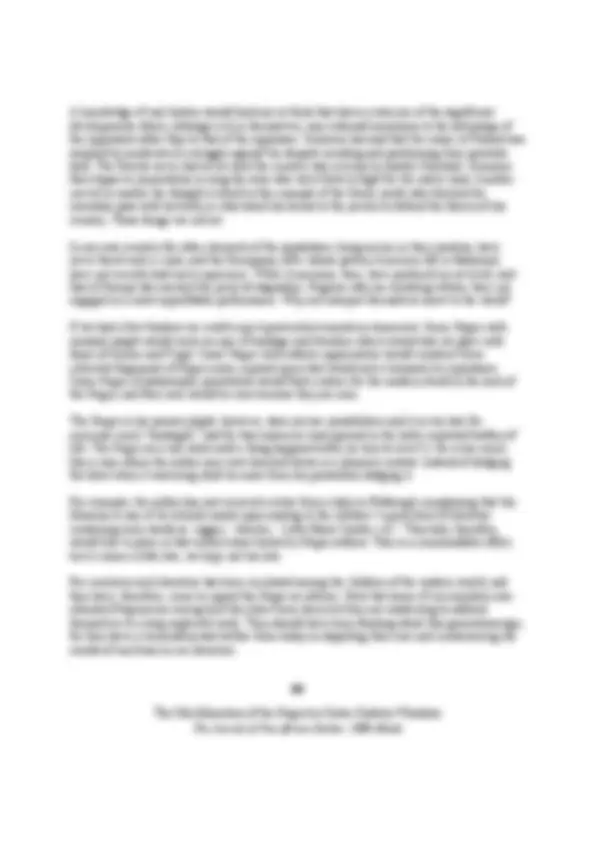
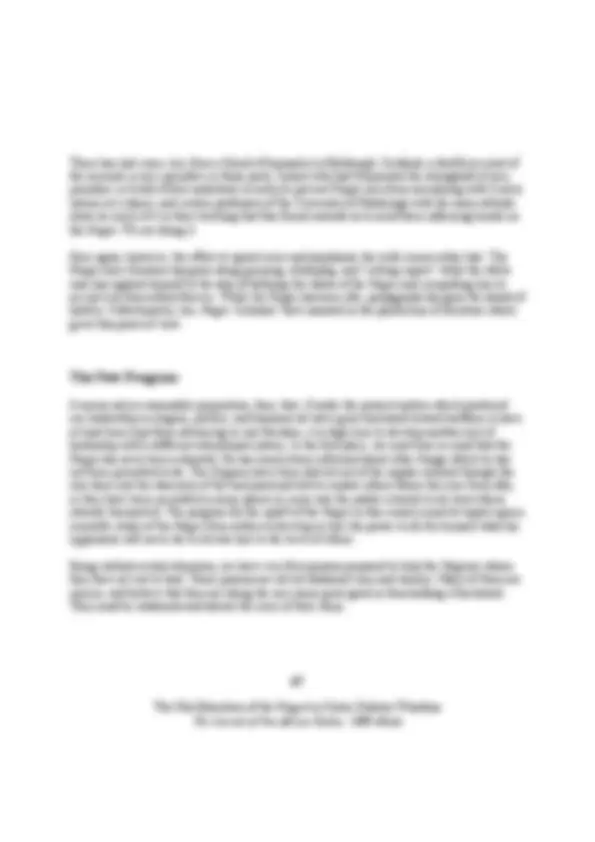
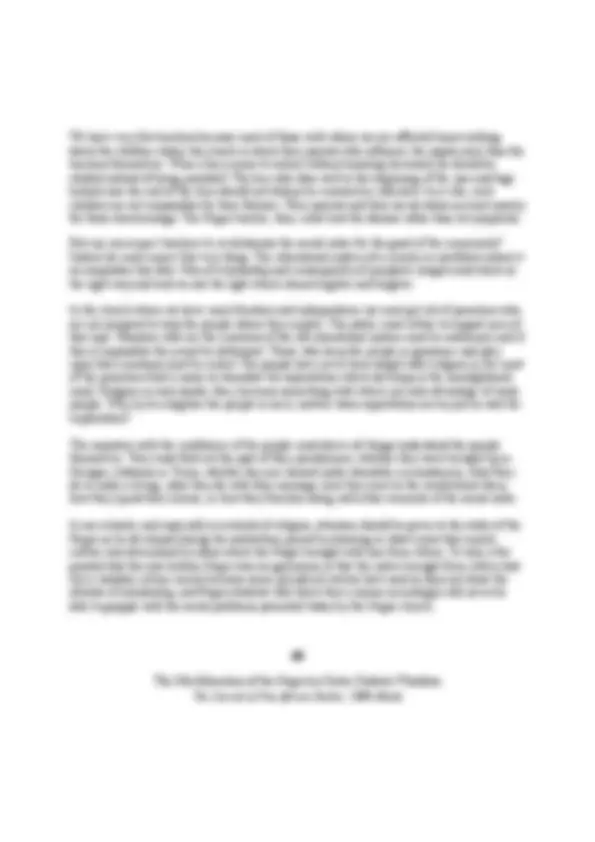
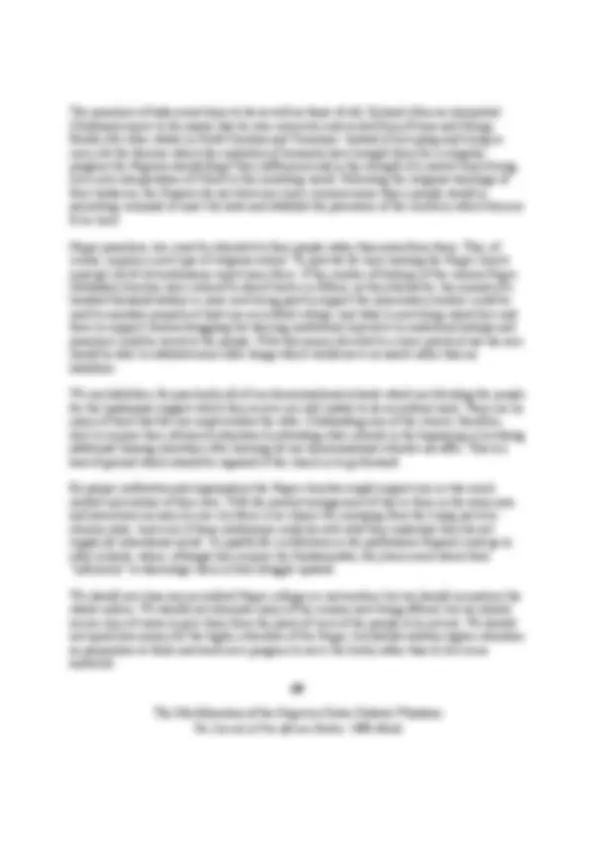
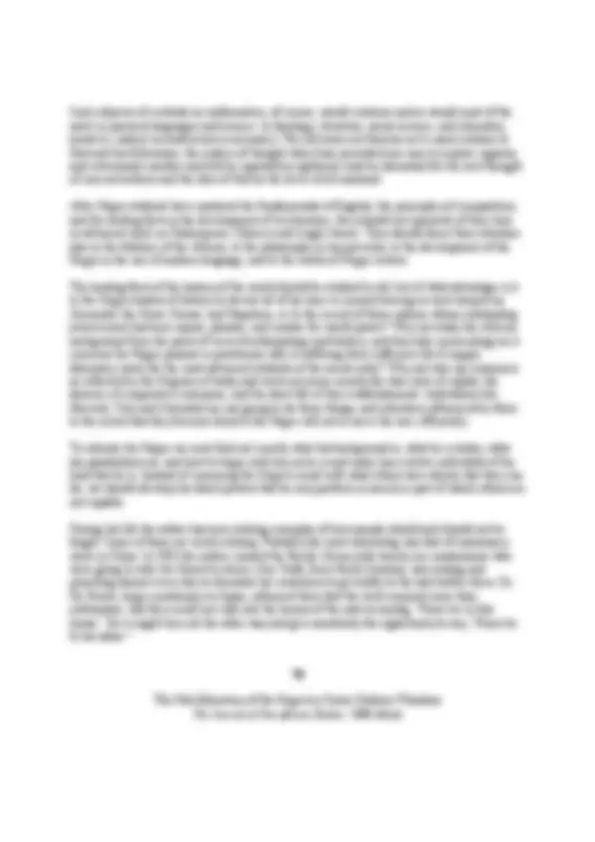
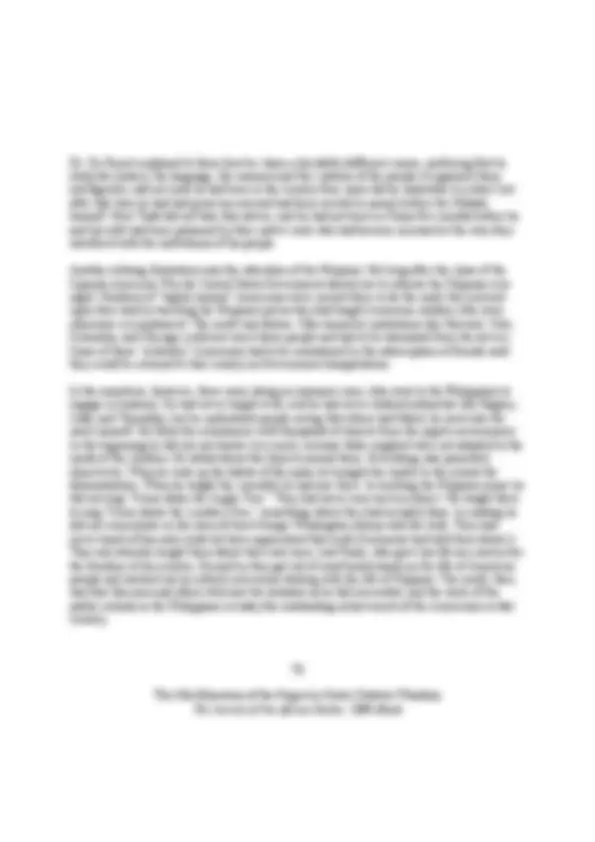
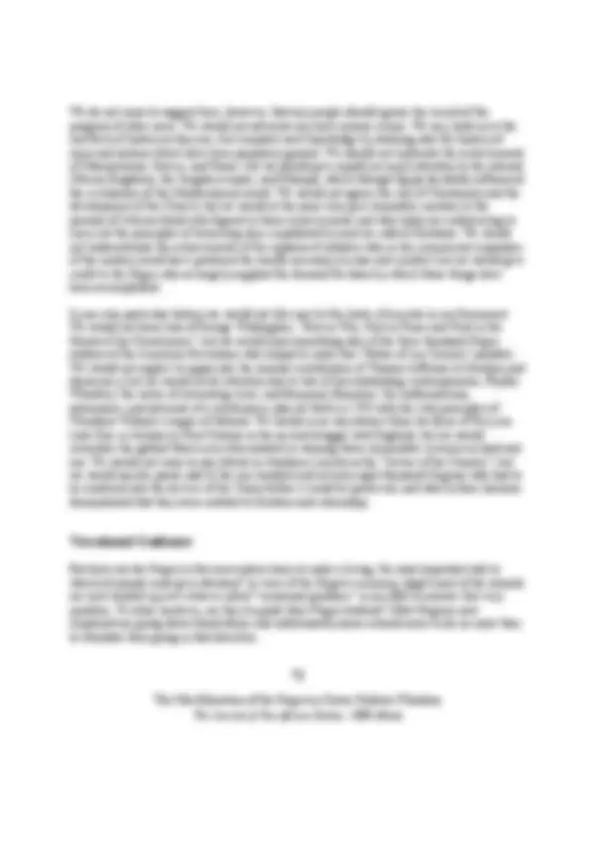
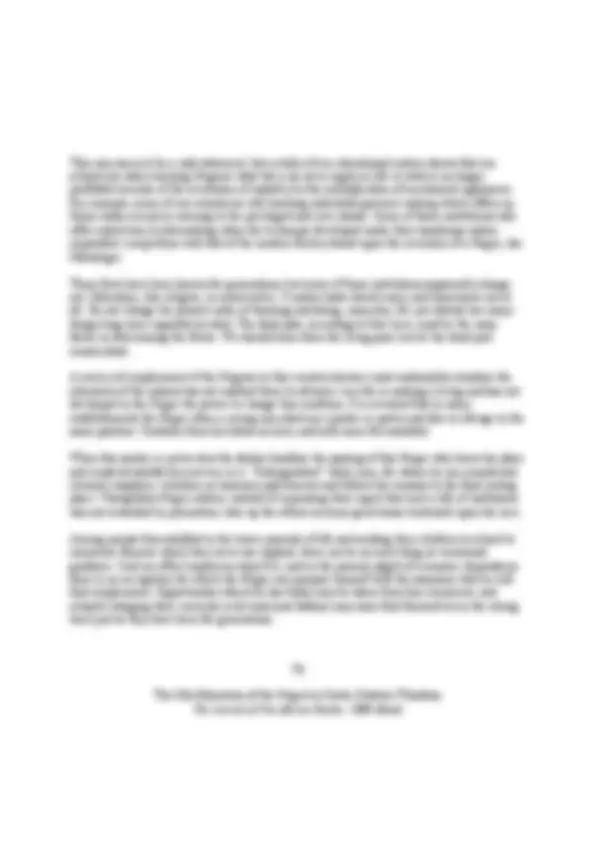
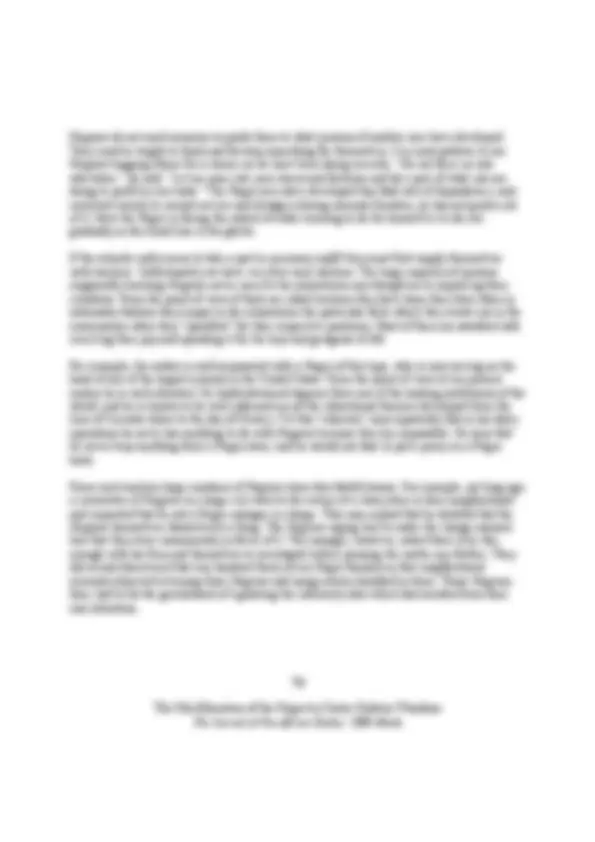
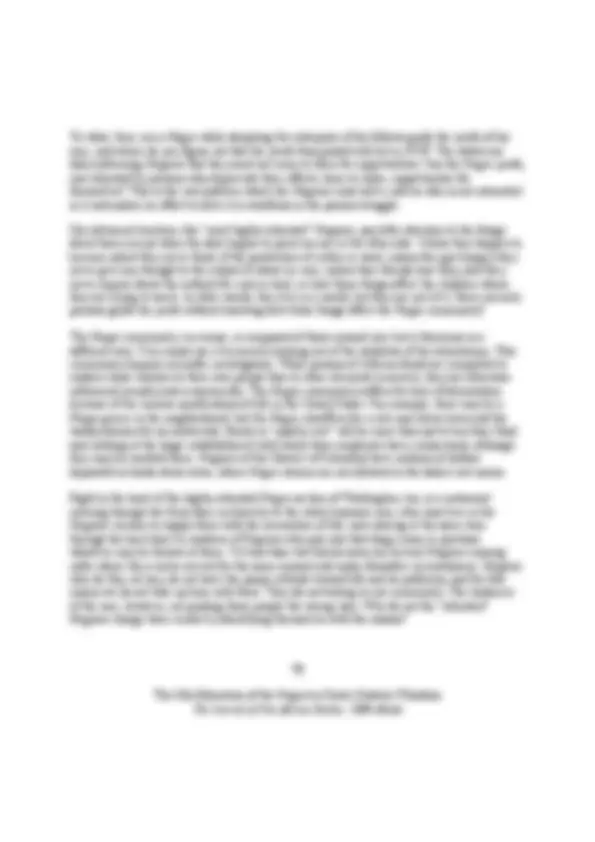
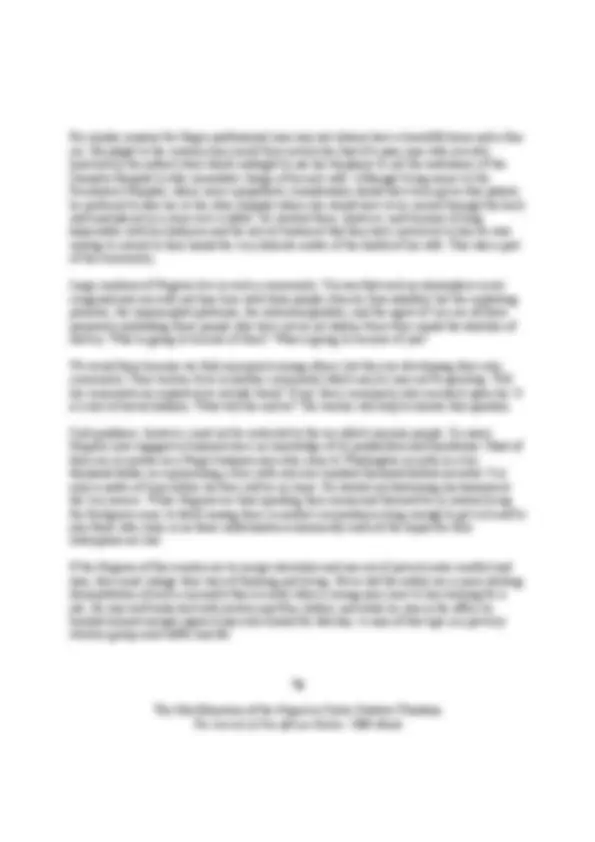
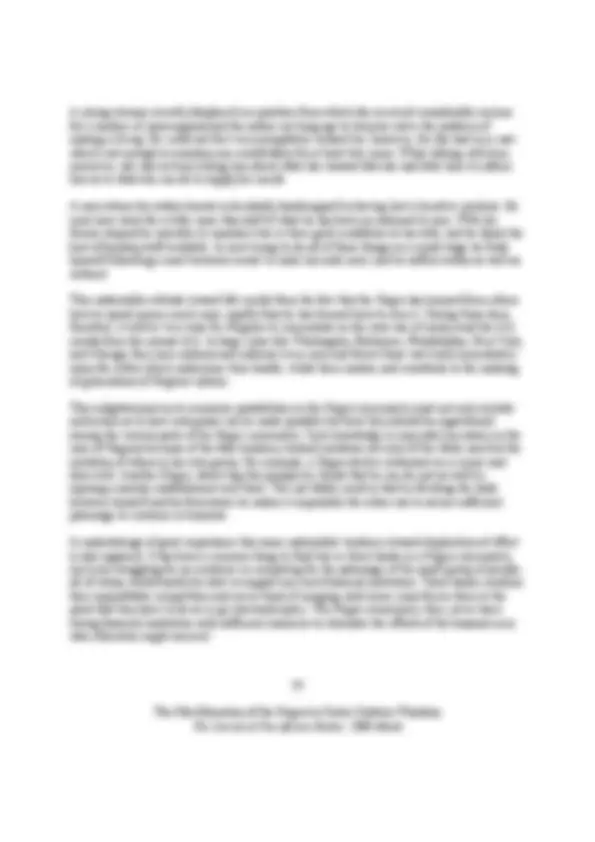
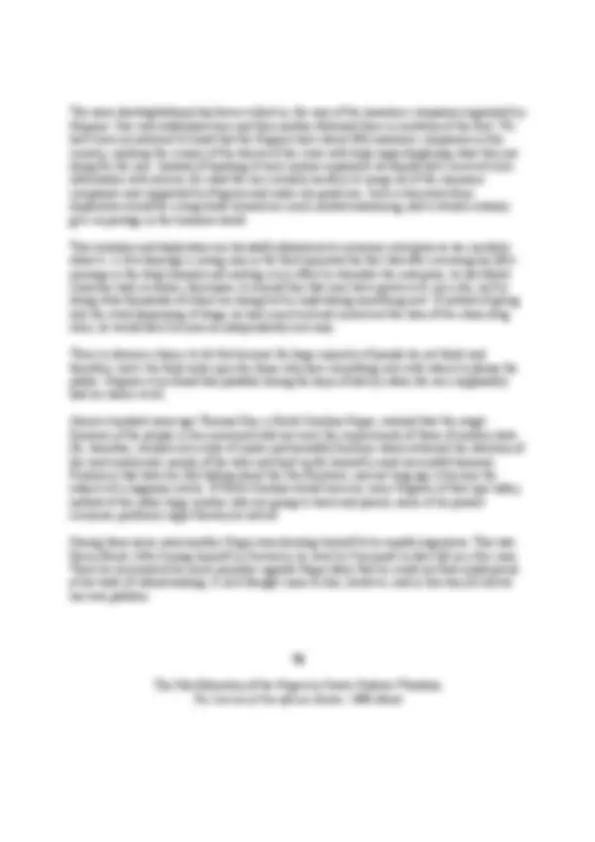
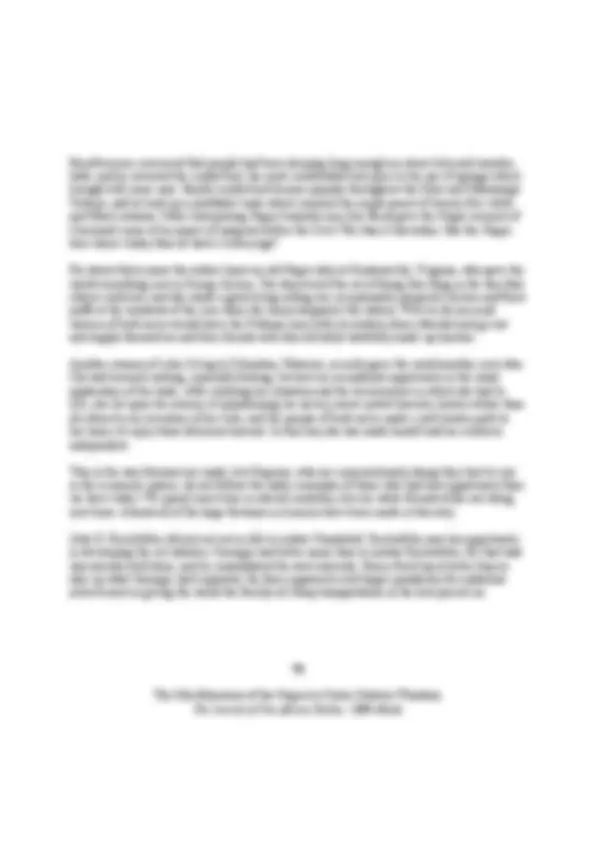
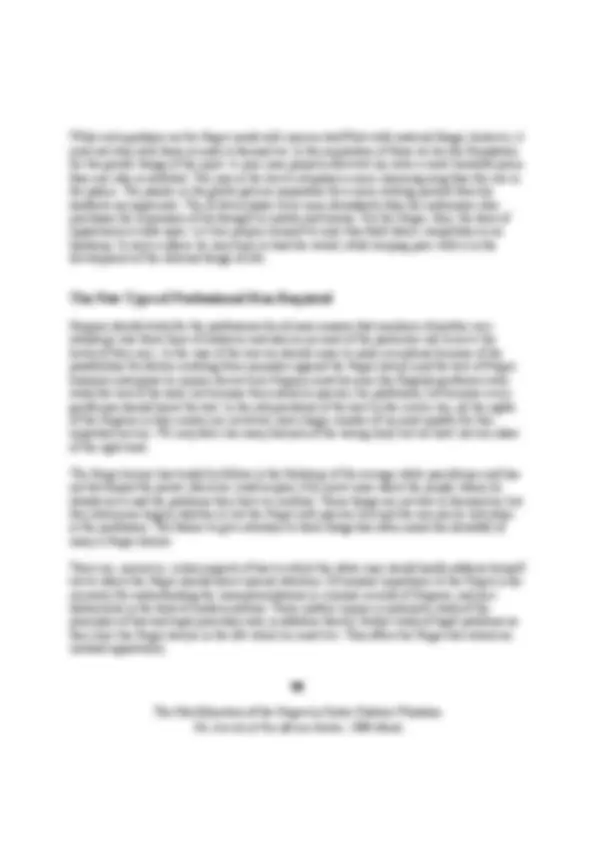
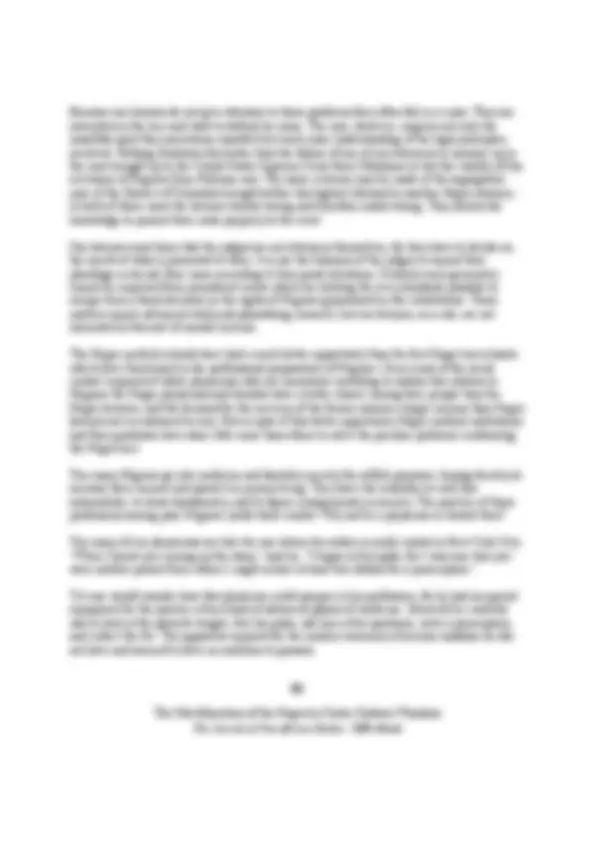
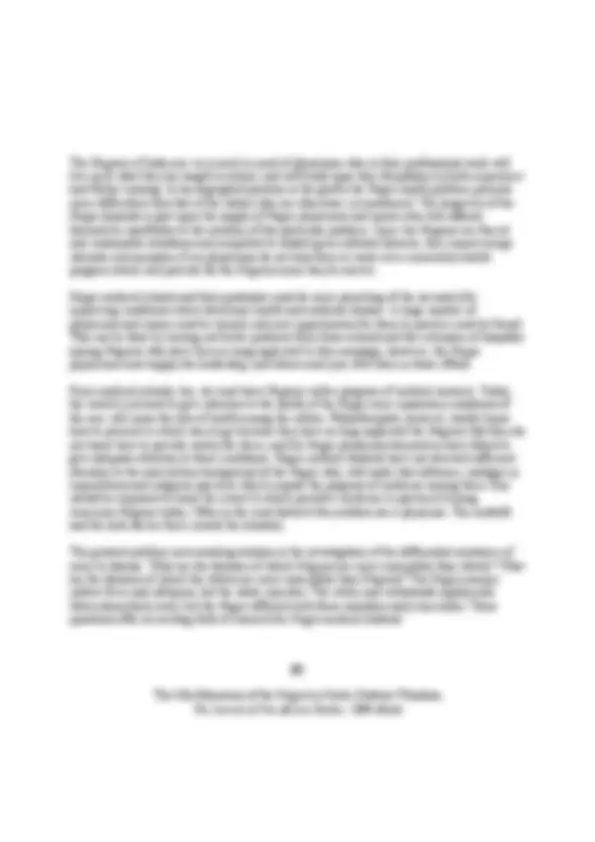
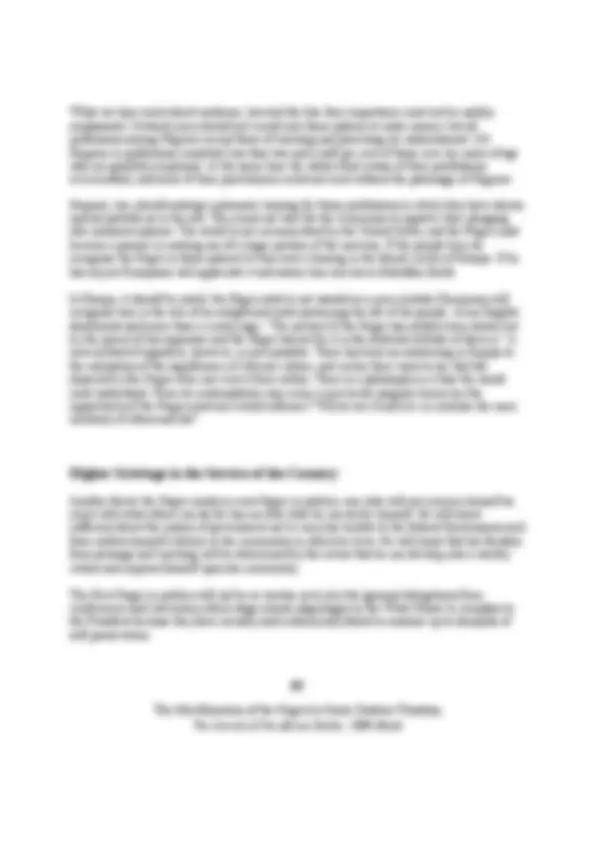
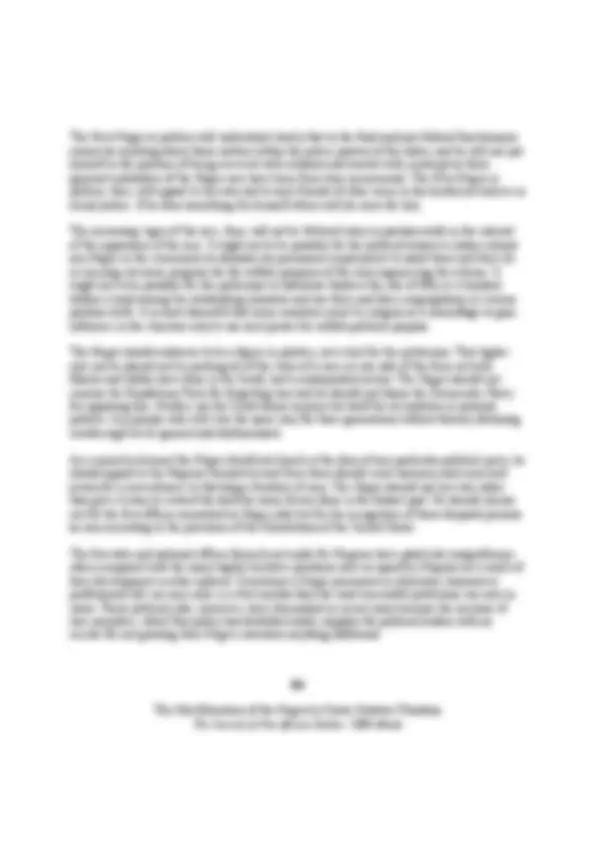
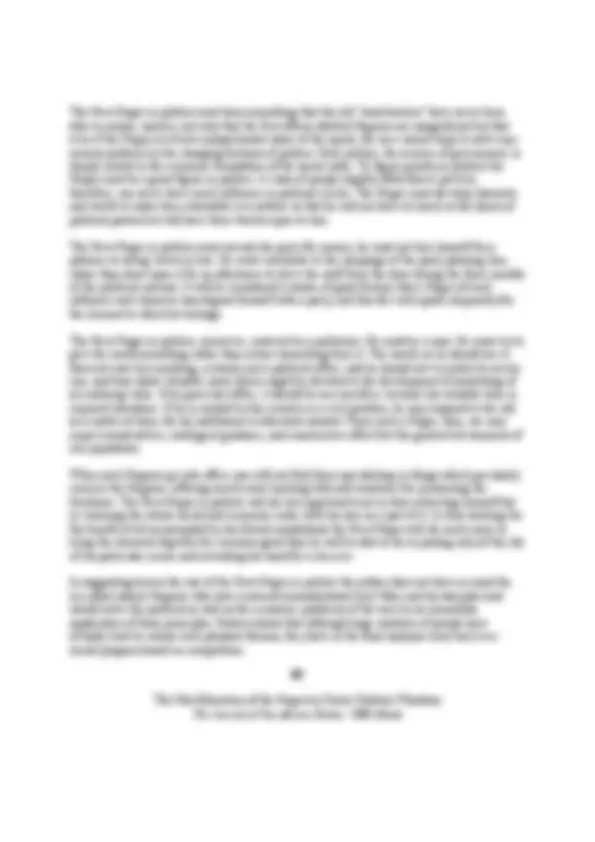
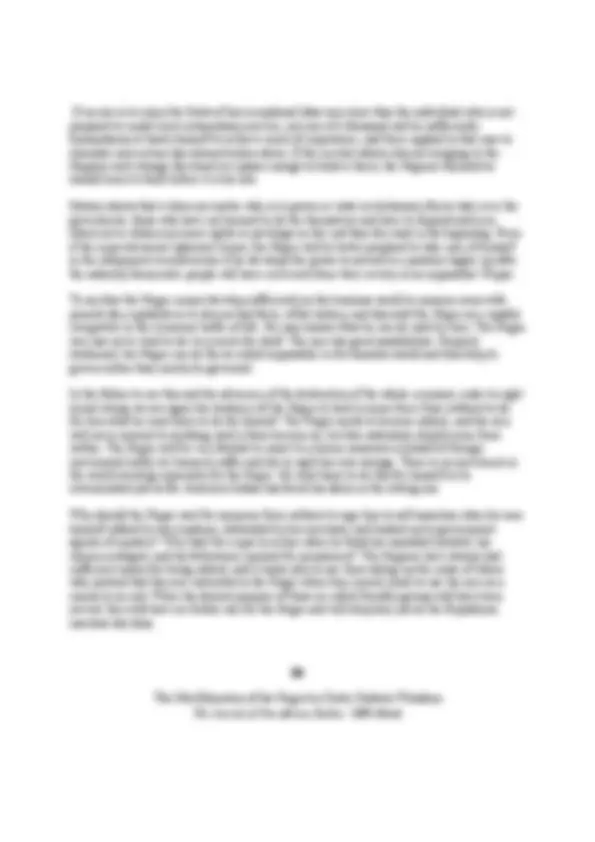
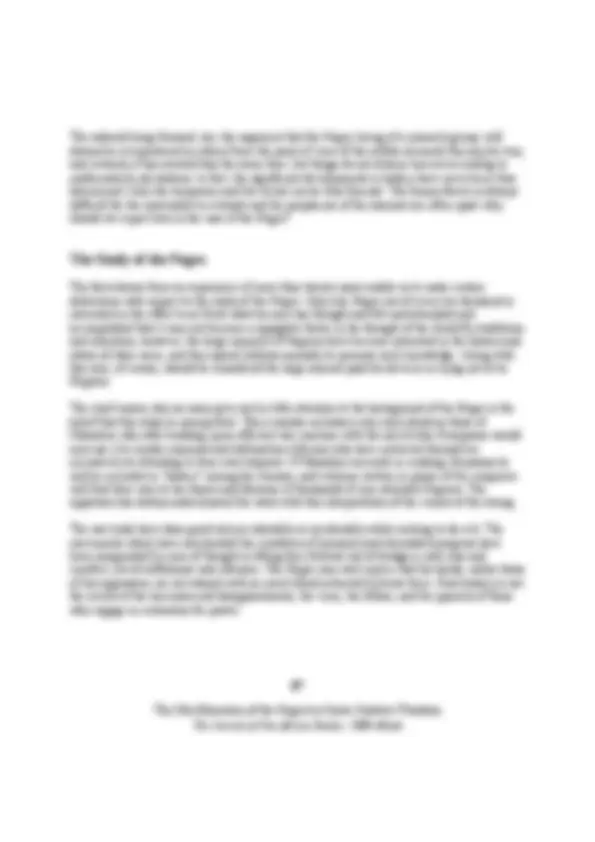
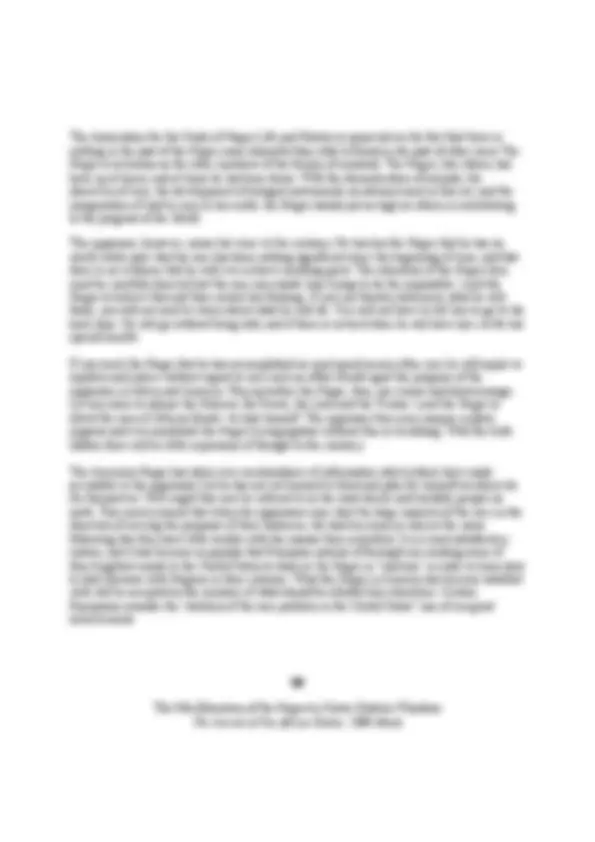
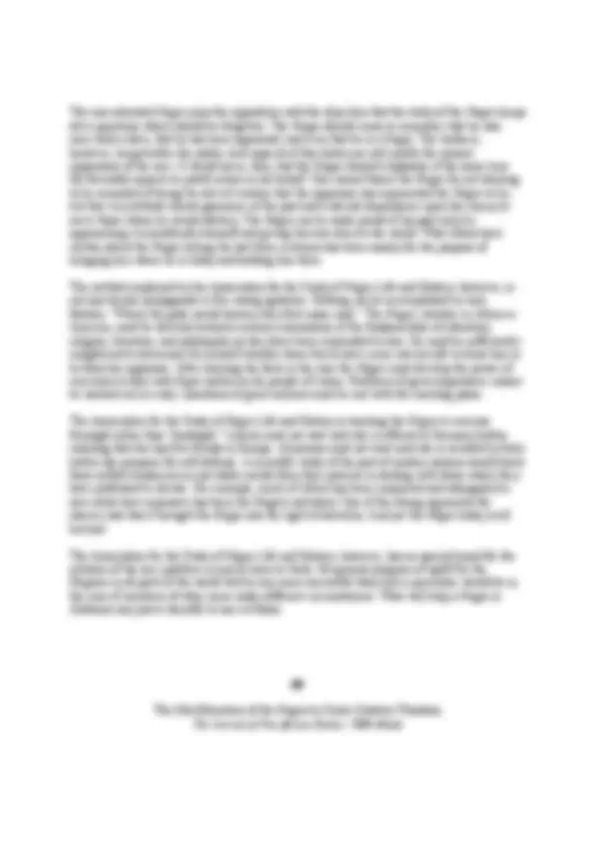
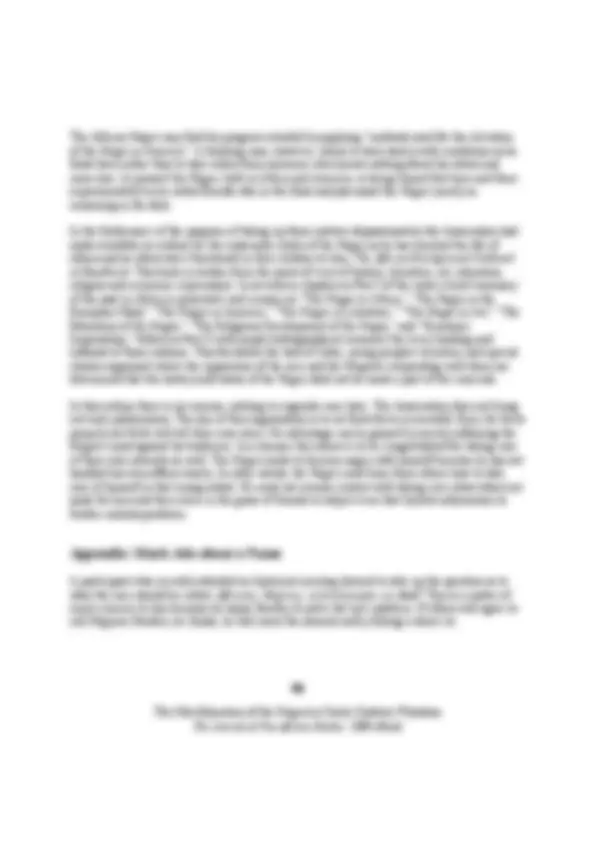
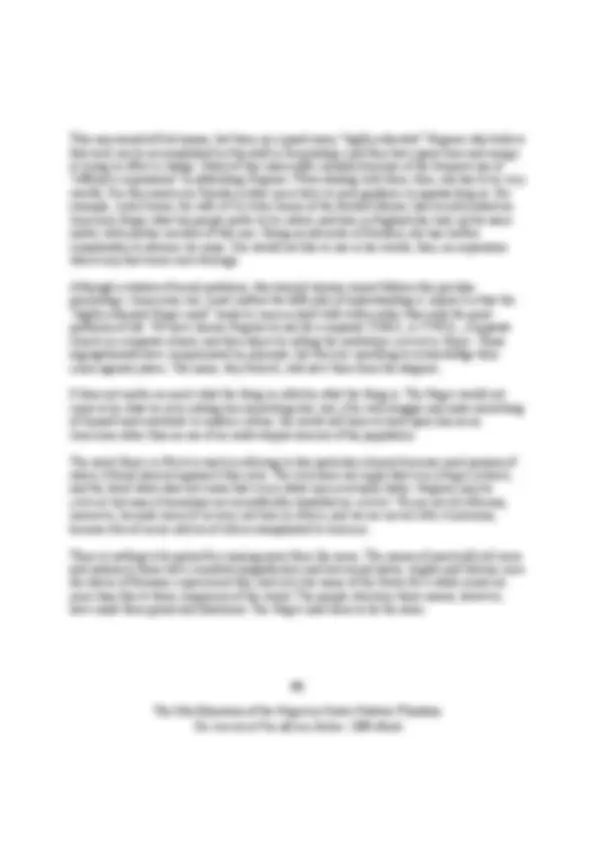
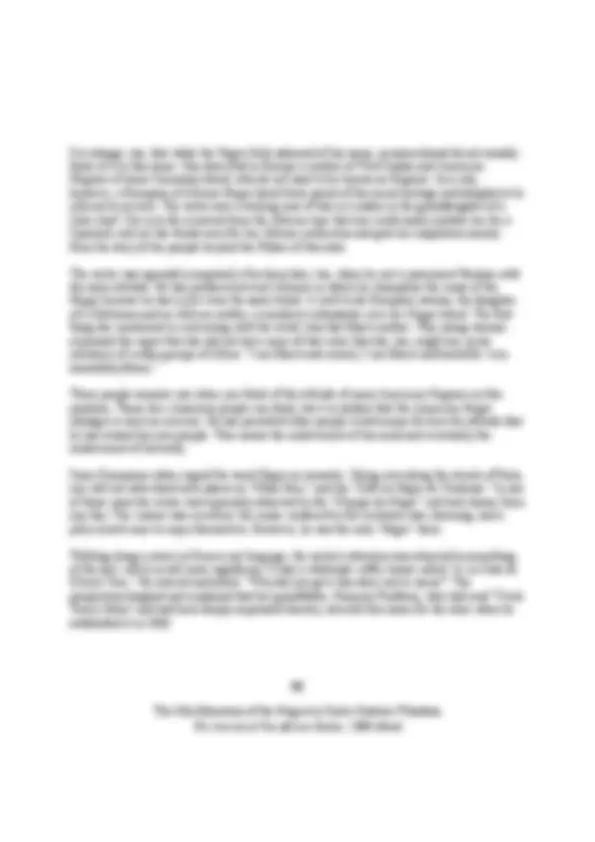
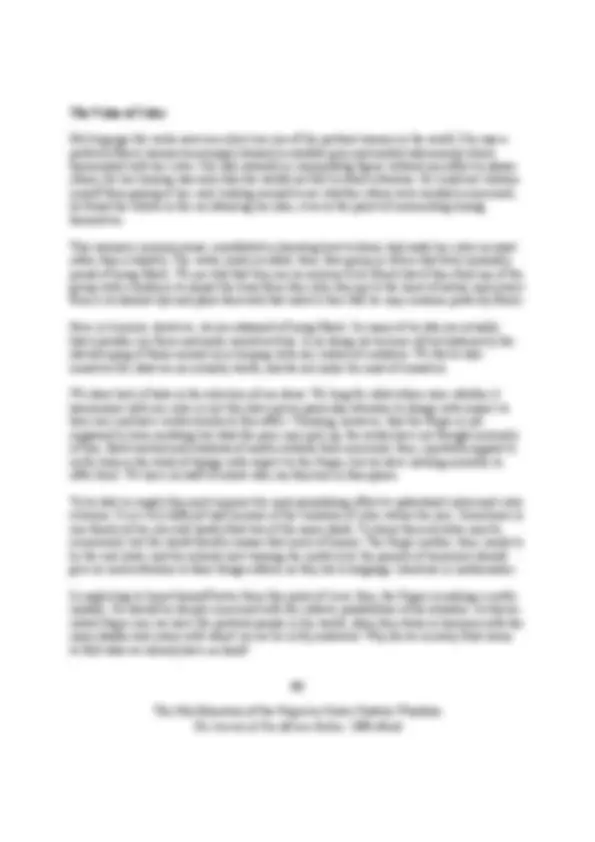
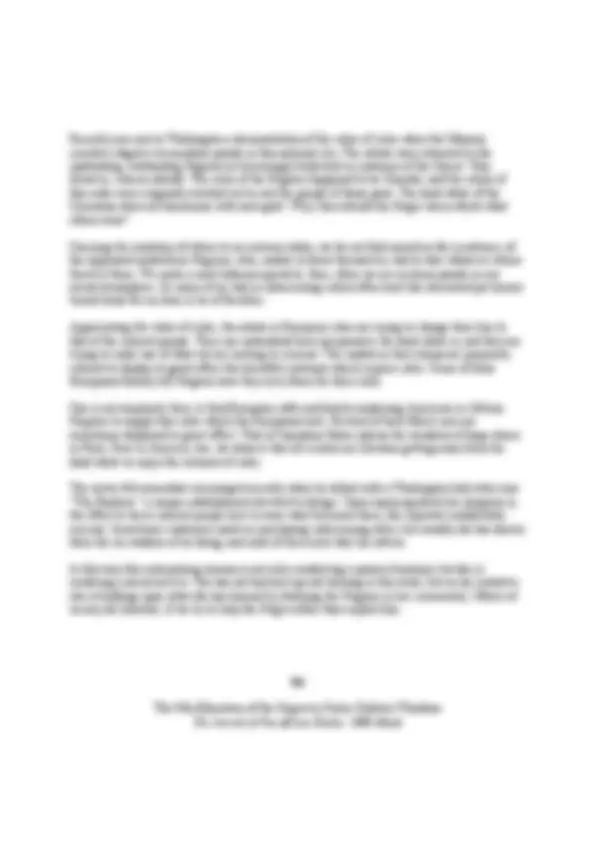


Study with the several resources on Docsity

Earn points by helping other students or get them with a premium plan


Prepare for your exams
Study with the several resources on Docsity

Earn points to download
Earn points by helping other students or get them with a premium plan
Community
Ask the community for help and clear up your study doubts
Discover the best universities in your country according to Docsity users
Free resources
Download our free guides on studying techniques, anxiety management strategies, and thesis advice from Docsity tutors
The Mis-Education of the Negro by Carter Godwin Woodson. The Journal of Pan African Studies: 2009 eBook. Page 5. The same educational process which inspires and ...
Typology: Lecture notes
1 / 94

This page cannot be seen from the preview
Don't miss anything!























































































by
First published in 1933 in Washington, D.C. by Associated Publishers The contents herein is the same as the 1933 Associated Publishers edition, except for the capitalization of ‘Black’, and ‘Negro’; the converting of ‘tribe’ to ‘group’, and the correction of a few grammatical errors, edited by JPAS editor Itibari M. Zulu. Second, in this exercise, we also recognize a need for gender balance or neutrality in the phraseology of the author, therefore we ask readers to consider the historical and social context of this in any analysis, and thus acknowledge that this work should open a door for a full critical and scholarly analysis of this historic book.
Foreword 2 Preface 3 The Seat of the Trouble 5 How We Missed the Mark 9 How We Drifted Away from the Truth 12 Education Under Outside Control 15 The Failure to Learn to Make a Living 21 The Educated Negro Leaves the Masses 27 Dissension and Weakness 31 Professional Educated Discouraged 36 Political Education Neglected 40 The Loss of Vision 45 1 The Mis-Education of the Negro by Carter Godwin Woodson
The Need for Service Rather Than Leadership 52 Hirelings in the Places of Public servants 56 Understand the Negro 62 The New Program 67 Vocational Guidance 72 The New Type of Professional Man Required 80 Higher Strivings in the Service of the Country 83 The Study of the Negro 87 Appendix 88
The thoughts brought together in this volume have been expressed in recent addresses and articles written by the author. From time to time persons deeply interested in the point of view therein presented have requested that these comments on education be made available in book form. To supply this demand this volume is given to the public. In the preparation of the volume the author has not followed in detail the productions upon which most of the book is based. The aim is to set forth only the thought developed in passing from the one to the other. The language in some cases, then, is entirely new; and the work is not a collection of essays. In this way repetition has been avoided except to emphasize the thesis which the author sustains. Carter Godwin Woodson Washington, D. C. January, 1933. 2 The Mis-Education of the Negro by Carter Godwin Woodson
Herein, however, lies no argument for the oft-heard contention that education for the white man should mean one thing and for the Negro a different thing. The element of race does not enter here. It is merely a matter of exercising common sense in approaching people through their environment in order to deal with conditions as they are rather than as you would like to see them or imagine that they are. There may be a difference in method of attack, but the principle remains the same. "Highly educated" Negroes denounce persons who advocate for the Negro a sort of education different in some respects from that now given the white man. Negroes who have been so long inconvenienced and denied opportunities for development are naturally afraid of anything that sounds like discrimination. They are anxious to have everything the white man has even if it is harmful. The possibility of originality in the Negro, therefore, is discounted one hundred per cent to maintain a nominal equality. If the whites decide to take up Mormonism the Negroes must follow their lead. If the whites neglect such a study, then the Negroes must do likewise. The author, however, does not have such an attitude. He considers the educational system as it has developed both in Europe and America an antiquated process which does not hit the mark even in the case of the needs of the white man himself. If the white man wants to hold on to it, let him do so; but the Negro, so far as he is able, should develop and carry out a program of his own. The so-called modern education, with all its defects, however, does others so much more good than it does the Negro, because it has been worked out in conformity to the needs of those who have enslaved and oppressed weaker peoples. For example, the philosophy and ethics resulting from our educational system have justified slavery, peonage, segregation, and lynching. The oppressor has the right to exploit, to handicap, and to kill the oppressed. Negroes daily educated in the tenets of such a religion of the strong have accepted the status of the weak as divinely ordained, and during the last three generations of their nominal freedom they have done practically nothing to change it. Their pouting and resolutions indulged in by a few of the race have been of little avail. No systematic effort toward change has been possible, for, taught the same economics, history, philosophy, literature and religion which have established the present code of morals, the Negro's mind has been brought under the control of his oppressor. The problem of holding the Negro down, therefore, is easily solved. When you control a man's thinking you do not have to worry about his actions. You do not have to tell him not to stand here or go yonder. He will find his "proper place" and will stay in it. You do not need to send him to the back door. He will go without being told. In fact, if there is no back door, he will cut one for his special benefit. His education makes it necessary. 4 The Mis-Education of the Negro by Carter Godwin Woodson
The same educational process which inspires and stimulates the oppressor with the thought that he is everything and has accomplished everything worthwhile, depresses and crushes at the same time the spark of genius in the Negro by making him feel that his race does not amount to much and never will measure up to the standards of other peoples. The Negro thus educated is a hopeless liability of the race. The difficulty is that the "educated Negro" is compelled to live and move among his own people whom he has been taught to despise. As a rule, therefore, the "educated Negro" prefers to buy his food from a white grocer because he has been taught that the Negro is not clean. It does not matter how often a Negro washes his hands, then, he cannot clean them, and it does not matter how often a white man uses his hands he cannot soil them. The educated Negro, moreover, is disinclined to take part in Negro business, because he has been taught in economics that Negroes cannot operate in this particular sphere. The "educated Negro" gets less and less pleasure out of the Negro church, not on account of its primitiveness and increasing corruption, but because of his preference for the seats of "righteousness" controlled by his oppressor. This has been his education, and nothing else can be expected of him. If the "educated Negro" could go off and be white he might be happy, but only a mulatto now and then can do this. The large majority of this class, then, must go through life denouncing white people because they are trying to run away from the Blacks and decrying the Blacks because they are not white.
The "educated Negroes" have the attitude of contempt toward their own people because in their own as well as in their mixed schools Negroes are taught to admire the Hebrew, the Greek, the Latin and the Teuton and to despise the African. Of the hundreds of Negro high schools recently examined by an expert in the United States Bureau of Education only eighteen offer a course taking up the history of the Negro, and in most of the Negro colleges and universities where the Negro is thought of, the race is studied only as a problem or dismissed as of little consequence. For example, an officer of a Negro university, thinking that an additional course on the Negro should be given there, called upon a Negro Doctor of Philosophy of the faculty to offer such work. He promptly informed the officer that he knew nothing about the Negro. He did not go to school to waste his time that way. He went to be educated in a system which dismisses the Negro as a nonentity. 5 The Mis-Education of the Negro by Carter Godwin Woodson
And even in the certitude of science or mathematics it has been unfortunate that the approach to the Negro has been borrowed from a "foreign" method. For example, the teaching of arithmetic in the fifth grade in a backward county in Mississippi should mean one thing in the Negro school and a decidedly different thing in the white school. The Negro children, as a rule, come from the homes of tenants and peons who have to migrate annually from plantation to plantation, looking for light which they have never seen. The children from the homes of white planters and merchants live permanently in the midst of calculations, family budgets, and the like, which enable them sometimes to learn more by contact than the Negro can acquire in school. Instead of teaching such Negro children less arithmetic, they should be taught much more of it than the white children, for the latter attend a graded school consolidated by free transportation when the Negroes go to one-room rented hovels to be taught without equipment and by incompetent teachers educated scarcely beyond the eighth grade. In schools of theology Negroes are taught the interpretation of the Bible worked out by those who have justified segregation and winked at the economic debasement of the Negro sometimes almost to the point of starvation. Deriving their sense of right from this teaching, graduates of such schools can have no message to grip the people whom they have been ill trained to serve. Most of such mis-educated ministers, therefore, preach to benches while illiterate Negro preachers do the best they can in supplying the spiritual needs of the masses. In the schools of business administration Negroes are trained exclusively in the psychology and economics of Wall Street and are, therefore, made to despise the opportunities to run ice wagons, push banana carts, and sell peanuts among their own people. Foreigners, who have not studied economics but have studied Negroes, take up this business and grow rich. In schools of journalism Negroes are being taught how to edit such metropolitan dailies as the Chicago Tribune and the New York Times , which would hardly hire a Negro as a janitor; and when these graduates come to the Negro weeklies for employment they are not prepared to function in such establishments, which, to be successful, must be built upon accurate knowledge of the psychology and philosophy of the Negro. When a Negro has finished his education in our schools, then, he has been equipped to begin the life of an Americanized or Europeanized white man, but before he steps from the threshold of his alma mater he is told by his teachers that he must go back to his own people from whom he has been estranged by a vision of ideals which in his disillusionment he will realize that he cannot attain. He goes forth to play his part in life, but he must be both social and bi-social at the same time. While he is a part of the body politic, he is in addition to this a member of a particular race to which he must restrict himself in all matters social. While serving his country he must serve within a special group. While being a good American, he must above all things be a "good Negro"; and to perform this definite function he must learn to stay in a "Negro's place." 7 The Mis-Education of the Negro by Carter Godwin Woodson
For the arduous task of serving a race thus handicapped, however, the Negro graduate has had little or no training at all. The people whom he has been ordered to serve have been belittled by his teachers to the extent that he can hardly find delight in undertaking what his education has led him to think is impossible. Considering his race as blank in achievement, then, he sets out to stimulate their imitation of others The performance is kept up a while; but, like any other effort at meaningless imitation, it results in failure. Facing this undesirable result, the highly educated Negro often grows sour. He becomes too pessimistic to be a constructive force and usually develops into a chronic fault-finder or a complainant at the bar of public opinion. Often when he sees that the fault lies at the door of the white oppressor whom he is afraid to attack, he turns upon the pioneering Negro who is at work doing the best he can to extricate himself from an uncomfortable predicament. In this effort to imitate, however, these "educated people" are sincere. They hope to make the Negro conform quickly to the standard of the whites and thus remove the pretext for the barriers between the races. They do not realize, however, that even if the Negroes do successfully imitate the whites, nothing new has thereby been accomplished. You simply have a larger number of persons doing what others have been doing. The unusual gifts of the race have not thereby been developed, and an unwilling world, therefore, continues to wonder what the Negro is good for. These "educated" people, however, decry any such thing as race consciousness; and in some respects they are right. They do not like to hear such expressions as "Negro literature," "Negro poetry," "African art," or "thinking Black"; and, roughly speaking, we must concede that such things do not exist. These things did not figure in the courses which they pursued in school, and why should they? "Aren't we all Americans? Then, whatever is American is as much the heritage of the Negro as of any other group in this country." The "highly educated" contend, moreover, that when the Negro emphasizes these things he invites racial discrimination by recognizing such differentness of the races. The thought that the Negro is one thing and the white man another is the stock-in-trade argument of the Caucasian to justify segregation. Why, then, should the Negro blame the white man for doing what he himself does? These "highly educated" Negroes, however, fail to see that it is not the Negro who takes this position. The white man forces him to it, and to extricate himself from the Negro leader, he must so deal with the situation as to develop in the segregated group the power with which they can elevate themselves. The differentness of races, moreover, is no evidence of superiority or of inferiority. This merely indicates that each race has certain gifts which the others do not possess. It is by the development of these gifts that every race must justify its right to exist. 8 The Mis-Education of the Negro by Carter Godwin Woodson
Neither this inadequately supported school system nor the struggling higher institutions of a classical order established about the same time, however, connected the Negroes very closely with life as it was. These institutions were concerned rather with life as they hoped to make it. When the Negro found himself deprived of influence in politics, therefore, and at the same time unprepared to participate in the higher functions in the industrial development which this country began to undergo, it soon became evident to him that he was losing ground in the basic things of life. He was spending his time studying about the things which had been or might be, but he was learning little to help him to do better the tasks at hand. Since the Negroes believed that the causes of this untoward condition lay without the race, migration was attempted, and emigration to Africa was again urged. At this psychological moment came the wave of industrial education which swept the country by storm. The educational authorities in the cities and States throughout the Black Belt began to change the course of study to make the training of the Negro conform to this policy. The missionary teachers from the North in defense of their idea of more liberal training, however, fearlessly attacked this new educational policy; and the Negroes participating in the same dispute arrayed themselves respectively on one side or the other. For a generation thereafter the quarrel as to whether the Negro should be given a classical or a practical education was the dominant topic in Negro schools and churches throughout the United States. Labor was the most important thing of life, it was argued; practical education counted in reaching that end; and the Negro worker must be taught to solve this problem of efficiency before directing attention to other things. Others more narrow-minded than the advocates of industrial education, seized upon the idea, feeling that, although the Negro must have some semblance of education, it would be a fine stroke to be able to make a distinction between the training given the Negro and that provided for the whites. Inasmuch as the industrial educational idea rapidly gained ground, too, many Negroes for political purposes began to espouse it; and schools and colleges hoping thereby to obtain money worked out accordingly makeshift provisions for such instruction, although they could not satisfactorily offer it. A few real industrial schools actually equipped themselves for this work and turned out a number of graduates with such preparation. Unfortunately, however, the affair developed into a sort of battle of words, for in spite of all they said and did the majority of the Negroes, those who did make some effort to obtain an education, did not actually receive either the industrial or the classical education. Negroes attended industrial schools, took such training as was prescribed, and received their diplomas; but few of them developed adequate efficiency to be able to do what they were supposedly trained to do. The schools in which they were educated could not provide for all the experience with machinery which white apprentices trained in factories had. 10 The Mis-Education of the Negro by Carter Godwin Woodson
Such industrial education as these Negroes received, then, was merely to master a technique already discarded in progressive centers; and even in less complicated operations of industry these schools had no such facilities as to parallel the numerous processes of factories conducted on the plan of the division of labor. Except what value such training might have in the development of the mind by making practical applications of mathematics and science, then, it was a failure. The majority of Negro graduates of industrial schools, therefore, have gone into other avenues, and too often into those for which they have had no preparation whatever. Some few who actually prepared for the industrial sphere by self-improvement likewise sought other occupations for the reason that Negroes were generally barred from higher pursuits by trades unions; and, being unable to develop captains of industry to increase the demand for persons in these lines, the Negroes have not opened up many such opportunities for themselves. During these years, too, the schools for the classical education for Negroes have not done any better. They have proceeded on the basis that every ambitious person needs a liberal education when as a matter of fact this does not necessarily follow. The Negro trained in the advanced phases of literature, philosophy, and politics has been unable to develop far in using his knowledge because of having to function in the lower spheres of the social order. Advanced knowledge of science, mathematics and languages, moreover, has not been much more useful except for mental discipline because of the dearth of opportunity to apply such knowledge among people who were largely common laborers in towns or peons on the plantations. The extent to which such higher education has been successful in leading the Negro to think, which above all is the chief purpose of education, has merely made him more of a malcontent when he can sense the drift of things and appreciate the impossibility of success in visioning conditions as they really are. It is very clear, therefore, that we do not have in the life of the Negro today a large number of persons who have been benefited by either of the systems about which we have quarreled so long. The numbers of Negro mechanics and artisans have comparatively declined during the last two generations. The Negroes do not proportionately represent as many skilled laborers as they did before the Civil War. If the practical education which the Negroes received helped to improve the situation so that it is today no worse than what it is, certainly it did not solve the problem as was expected of it. On the other hand, in spite of much classical education of the Negroes we do not find in the race a large supply of thinkers and philosophers. One excuse is that scholarship among Negroes has been vitiated by the necessity for all of them to combat segregation and fight to retain standing ground in the struggle of the races. 11 The Mis-Education of the Negro by Carter Godwin Woodson
In the study of language in school pupils were made to scoff at the Negro dialect as some peculiar possession of the Negro which they should despise rather than directed to study the background of this language as a broken-down African tongue—in short to understand their own linguistic history, which is certainly more important for them than the study of French Phonetics or Historical Spanish Grammar. To the African language as such no attention was given except in case of the preparation of traders, missionaries and public functionaries to exploit the natives. This number of persons thus trained, of course, constituted a small fraction hardly deserving attention. From literature the African was excluded altogether. He was not supposed to have expressed any thought worth knowing. The philosophy in the African proverbs and in the rich folklore of that continent was ignored to give preference to that developed on the distant shores of the Mediterranean. Most missionary teachers of the freedmen, like most men of our time, had never read the interesting books of travel in Africa, and had never heard of the Tarikh Es-Soudan. In the teaching of fine arts these instructors usually started with Greece by showing how that art was influenced from without, but they omitted the African influence which scientists now regard as significant and dominant in early Hellas. They failed to teach the student the Mediterranean Melting Pot with the Negroes from Africa bringing their wares, their ideas and their blood therein to influence the history of Greece, Carthage, and Rome. Making desire father to the thought, our teachers either ignored these influences or endeavored to belittle them by working out theories to the contrary. The bias did not stop at this point, for it invaded the teaching of the professions. Negro law students were told that they belonged to the most criminal element in the country; and an effort was made to justify the procedure in the seats of injustice where law was interpreted as being one thing for the white man and a different thing for the Negro. In constitutional law the spinelessness of the United States Supreme Court in permitting the judicial nullification of the Fourteenth and Fifteenth Amendments was and still is boldly upheld in our few law schools. In medical schools Negroes were likewise convinced of their inferiority in being reminded of their rôle as germ carriers. The prevalence of syphilis and tuberculosis among Negroes was especially emphasized without showing that these maladies are more deadly among the Negroes for the reason that they are Caucasian diseases; and since these plagues are new to Negroes, these sufferers have not had time to develop against them the immunity which time has permitted in the Caucasian. Other diseases to which Negroes easily fall prey were mentioned to point out the race as an undesirable element when this condition was due to the Negroes' economic and social status. Little emphasis was placed upon the immunity of the Negro from diseases like yellow fever and influenza which are so disastrous to whites. Yet, the whites were not considered inferior because of this differential resistance to these plagues. 13 The Mis-Education of the Negro by Carter Godwin Woodson
In history, of course, the Negro had no place in this curriculum. He was pictured as a human being of the lower order, unable to subject passion to reason, and therefore useful only when made the hewer of wood and the drawer of water for others. No thought was given to the history of Africa except so far as it had been a field of exploitation for the Caucasian. You might study the history as it was offered in our system from the elementary school throughout the university, and you would never hear Africa mentioned except in the negative. You would never thereby learn that Africans first domesticated the sheep, goat, and cow, developed the idea of trial by jury, produced the first stringed instruments, and gave the world its greatest boon in the discovery of iron. You would never know that prior to the Mohammedan invasion about 1000 A.D. these natives in the heart of Africa had developed powerful kingdoms which were later organized as the Songhay Empire on the order of that of the Romans and boasting of similar grandeur. Unlike other people, then, the Negro, according to this point of view, was an exception to the natural plan of things, and he had no such mission as that of an outstanding contribution to culture. The status of the Negro, then, was justly fixed as that of an inferior. Teachers of Negroes in their first schools after Emancipation did not proclaim any such doctrine, but the content of their curricula justified these inferences. An observer from outside of the situation naturally inquires why the Negroes, many of whom serve their race as teachers, have not changed this program. These teachers, however, are powerless. Negroes have no control over their education and have little voice in their other affairs pertaining thereto. In a few cases Negroes have been chosen as members of public boards of education, and some have been appointed members of private boards, but these Negroes are always such a small minority that they do not figure in the final working out of the educational program. The education of the Negroes, then, the most important thing in the uplift of the Negroes, is almost entirely in the hands of those who have enslaved them and now segregate them. With "mis-educated Negroes" in control themselves, however, it is doubtful that the system would be very much different from what it is or that it would rapidly undergo change. The Negroes thus placed in charge would be the products of the same system and would show no more conception of the task at hand than do the whites who have educated them and shaped their minds as they would have them function. Negro educators of today may have more sympathy and interest in the race than the whites now exploiting Negro institutions as educators, but the former have no more vision than their competitors. Taught from books of the same bias, trained by Caucasians of the same prejudices or by Negroes of enslaved minds, one generation of Negro teachers after another have served for no higher purpose than to do what they are told to do. In other words, a Negro teacher instructing Negro children is in many respects a white teacher thus engaged, for the program in each case is about the same. 14 The Mis-Education of the Negro by Carter Godwin Woodson
The unfortunate successors of the Northern missionary teachers of Negroes, however, have thoroughly demonstrated that they have no useful function in the life of the Negro. They have not the spirit of their predecessors and do not measure up to the requirements of educators desired in accredited colleges. If Negro institutions are to be as efficient as those for the whites in the South the same high standard for the educators to direct them should be maintained. Negro schools cannot go forward with such a load of inefficiency and especially when the white presidents of these institutions are often less scholarly than Negroes who have to serve under them. By law and custom the white presidents and teachers of Negro schools are prevented from participating freely in the life of the Negro. They occupy, therefore, a most uncomfortable dual position. When the author once taught in a school with a mixed faculty the white women connected with the institution would bow to him in patronizing fashion when on the campus, but elsewhere they did not see him. A white president of one Negro school never entertains a Negro in his home, preferring to shift such guests to the students' dining-room. Another white president of a Negro college maintains on the campus a guest cottage which Negroes can enter only as servants. Still another such functionary does not allow students to enter his home through the front door. Negroes trained under such conditions without protest become downright cowards, and in life will continue as slaves in spite of their nominal emancipation. "What different method of approach or what sort of appeal would one make to the Negro child that cannot be made just as well by a white teacher?" someone asked not long ago. To be frank we must concede that there is no particular body of facts that Negro teachers can impart to children of their own race that may not be just as easily presented by persons of another race if they have the same attitude as Negro teachers; but in most cases tradition, race hate, segregation, and terrorism make such a thing impossible. The only thing to do in this case, then, is to deal with the situation as it is. Yet we should not take the position that a qualified white person should not teach in a Negro school. For certain work which temporarily some whites may be able to do better than the Negroes there can be no objection to such service, but if the Negro is to be forced to live in the ghetto he can more easily develop out of it under his own leadership than under that which is super-imposed. The Negro will never be able to show all of his originality as long as his efforts are directed from without by those who socially proscribe him. Such "friends" will unconsciously keep him in the ghetto. 16 The Mis-Education of the Negro by Carter Godwin Woodson
Herein, however, the emphasis is not upon the necessity for separate systems but upon the need for common sense schools and teachers who understand and continue in sympathy with those whom they instruct. Those who take the position to the contrary have the idea that education is merely a process of imparting information. One who can give out these things or devise an easy plan for so doing, then, is an educator. In a sense this is true, but it accounts for most of the troubles of the Negro. Real education means to inspire people to live more abundantly, to learn to begin with life as they find it and make it better, but the instruction so far given Negroes in colleges and universities has worked to the contrary. In most cases such graduates have merely increased the number of malcontents who offer no program for changing the undesirable conditions about which they complain. One should rely upon protest only when it is supported by a constructive program. Unfortunately Negroes who think as the author does and dare express themselves are branded as opponents of interracial cooperation. As a matter of fact, however, such Negroes are the real workers in carrying out a program of interracial effort. Cooperation implies equality of the participants in the particular task at hand. On the contrary, however, the usual way now is for the whites to work out their plans behind closed doors, have them approved by a few Negroes serving nominally on a board, and then employ a white or mixed staff to carry out their program. This is not interracial cooperation. It is merely the ancient idea of calling upon the "inferior" to carry out the orders of the "superior." To express it in post-classic language, as did Jessie O. Thomas, "The Negroes do the coing' and the whites theoperating.'" This unsound attitude of the "friends" of the Negro is due to the persistence of the mediaeval idea of controlling underprivileged classes. Behind closed doors these "friends" say you need to be careful in advancing Negroes to commanding positions unless it can be determined beforehand that they will do what they are told to do. You can never tell when some Negroes will break out and embarrass their "friends." After being advanced to positions of influence some of them have been known to run amuck and advocate social equality or demand for their race the privileges of democracy when they should restrict themselves to education and religious development. It is often said, too, that the time is not ripe for Negroes to take over the administration of their institutions, for they do not have the contacts for raising money; but what becomes of this argument when we remember what Booker T. Washington did for Tuskegee and observe what R. R. Moton and John Hope are doing today? As the first Negro president of Howard University Mordecai W. Johnson has raised more money for that institution among philanthropists than all of its former presidents combined. Furthermore, if, after three generations the Negro colleges have not produced men qualified to administer their affairs, such an admission is an eloquent argument that they have failed ingloriously and should be immediately closed. 17 The Mis-Education of the Negro by Carter Godwin Woodson
Talking the other day with one of the men now giving the millions to build the four Negro universities in the South, however, I find that he is of the opinion that accredited institutions can be established in mushroom fashion with theorists out of touch with the people. In other words, you can go almost anywhere and build a three million dollar plant, place in charge a white man to do what you want accomplished, and in a short while he can secure or have trained to order the men necessary to make a university. "We want here," he will say, "a man who has his Master's degree in English. Send me another who has his doctor's degree in sociology, and I can use one more in physics." Now, experience has shown that men of this type may "fill in," but a university cannot be established with such raw recruits. The author once had some experience in trying to man a college in this fashion, and the result was a story that would make an interesting headline for the newspapers. When Dr. William Bainey Harper was establishing the University of Chicago he called to the headship of the various departments; only men who had distinguished themselves in the creative world. Some had advanced degrees, and some had not. Several of them had never done any formal graduate work at all. All of them, however, were men whose thought was moving the world. It may be argued that the Negroes have no such men and must have them trained, but such a thing cannot be forced as we are now doing it. It would be much better to stimulate the development of the more progressive teachers of old than experiment with novices produced by the degradation of higher education. The degradation of the doctorate especially dawned upon the author the other day more clearly than ever when a friend of his rushed into his office saying, "I have been trying to see you for several days. I have just failed to get a job for which I had been working, and I am told that I cannot expect a promotion until I get my `darkter's 'gree.'" That is what he called it. He could not even pronounce the words, but he is determined to have his "darkter's 'gree" to get the job in sight. This shameful status of higher education is due in a large measure to low standards of institutions with a tendency toward the diploma mill procedure. To get a job or to hold one you go in and stay until they "grind" you out a "darkter's 'gree." And you do not have to worry any further. The assumption is that almost any school will be glad to have you thereafter, and you will receive a large salary. Investigation has shown, however, that men who have the doctorate not only lose touch with the common people, but they do not do as much creative work as those of less formal education. After having this honor conferred upon them, these so-called scholars often rest on their oars. Few persons have thought of the seriousness of such inertia among men who are put in the lead of things because of meeting statutory requirements of frontier universities which are not on the frontier. 19 The Mis-Education of the Negro by Carter Godwin Woodson
The General Education Board and the Julius Rosenwald Fund have a policy which may be a partial solution of the undeveloped Negro college instructor's problem. These foundations are giving Negro teachers scholarships to improve themselves for work in the sphere in which they are now laboring in the South. These boards, as a rule, do not send one to school to work for the Doctor's degree. If they find a man of experience and good judgment, showing possibilities for growth, they will provide for him to study a year or more to refresh his mind with whatever there is new in his field. Experience has shown that teachers thus helped have later done much better work than Doctors of Philosophy made to order. The Northern universities, moreover, cannot do graduate work for Negroes along certain lines when they are concentrating on the educational needs of people otherwise circumstanced. The graduate school for Negroes studying chemistry is with George W. Carver at Tuskegee. At least a hundred youths should wait daily upon the words of this scientist to be able to pass on to the generations unborn his great knowledge of agricultural chemistry. Negroes desiring to specialize in agriculture should do it with workers like T. M. Campbell and B. F. Hubert among the Negro farmers of the South. In education itself the situation is the same. Neither Columbia nor Chicago can give an advanced course in Negro rural education, for their work in education is based primarily upon what they know of the educational needs of the whites. Such work for Negroes must be done under the direction of the trail blazers who are building school houses and reconstructing the educational program of those in the backwoods. Leaders of this type can supply the foundation upon which a university of realistic education may be established. We offer no argument here against earning advanced degrees, but these should come as honors conferred for training crowned with scholastic distinction, not to enable a man to increase his salary or find a better paying position. The schools which are now directing attention exclusively to these external marks of learning will not contribute much to the uplift of the Negro. In Cleveland not long ago the author found at the Western Reserve University something unusually encouraging. A native of Mississippi, a white man trained in a Northern university and now serving as a professor in one, has under him in sociology a Negro student from Georgia. For his dissertation this Negro is collecting the sayings of his people in everyday life—their morning greetings, their remarks about the weather, their comments on things which happen around them, their reactions to things which strike them as unusual, and their efforts to interpret life as the panorama passes before them. This white Mississippian and Black Georgian are on the right way to understand the Negro and, if they do not fall out about social equality, they will serve the Negro much better than those who are trying to find out whether Henry VIII lusted more after Anne Boleyn than after Catherine of Aragon or whether Elizabeth was justly styled as more untruthful than Philip II of Spain. 20 The Mis-Education of the Negro by Carter Godwin Woodson